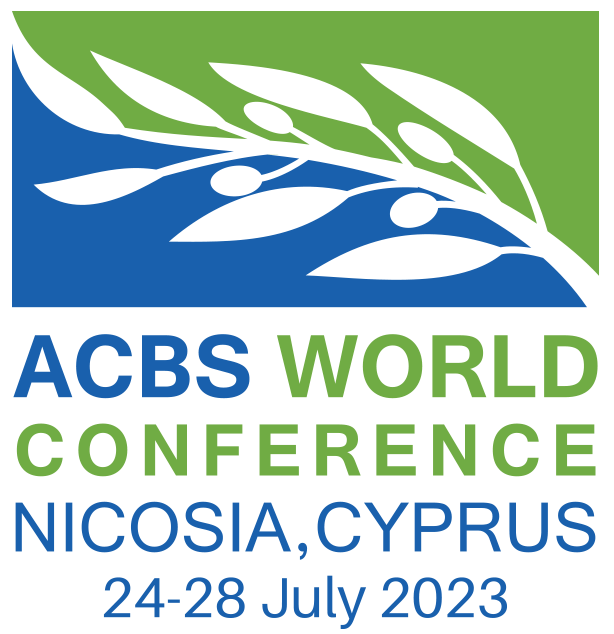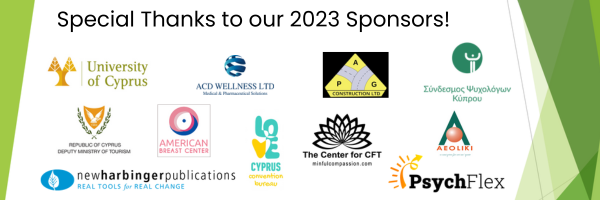ACBS World Conference 2023
ACBS World Conference 2023The event has concluded. Please find information regarding the 2024 ACBS World Conference here.
Pre-Conference intensive, virtual, 2 day workshops: 24-25 June 2023
Pre-Conference intensive, in-person, 2 day workshops: 24-25 July 2023
Conference sessions: 26-28 July 2023
Visas
Request a Visa invitation letter
Travel
Conference Highlights
- Lunches and coffee/tea are included so that you have more time to network.
- Invited speakers: Vera Araujo-Soares, Tamar Black, Lucy Johnstone, Maria Karekla, Raimo Lappalainen, Alexandros Lordos, Susan Michie, Pádraig Ó Tuama, Roger Vilardaga
- Workshops, Workshops, Workshops. 1 hour and 2 hour workshops are included (no extra charge), with your in-person conference registration. These 60+ workshops are one-of-a-kind learning opportunities.
About
AboutWhat is the World Conference?
The World Conference brings together clinicians and researchers to present cutting-edge research in, among other modalities, Acceptance and Commitment Therapy (ACT), Relational Frame Theory (RFT), and Contextual Behavioral Science, as well as experienced trainers to lead experiential workshops so that you can learn how to better serve your clients.
The World Conference welcomes psychologists, social workers, professional counselors, marriage and family therapists, psychiatrists, physicians, drug counselors, health researchers, language researchers, behavior analysts, teachers, organizational psychologists, students and more.... Anyone in a similarly related helping or research field is invited to attend.
Registration to the in-person conference includes networking opportunities during coffee/tea or lunch breaks, open access to workshops, research symposia, posters, panel discussions, plenary sessions with CBS researchers and practitioners, and our IGNITE sessions. Virtual attendance options will be available.
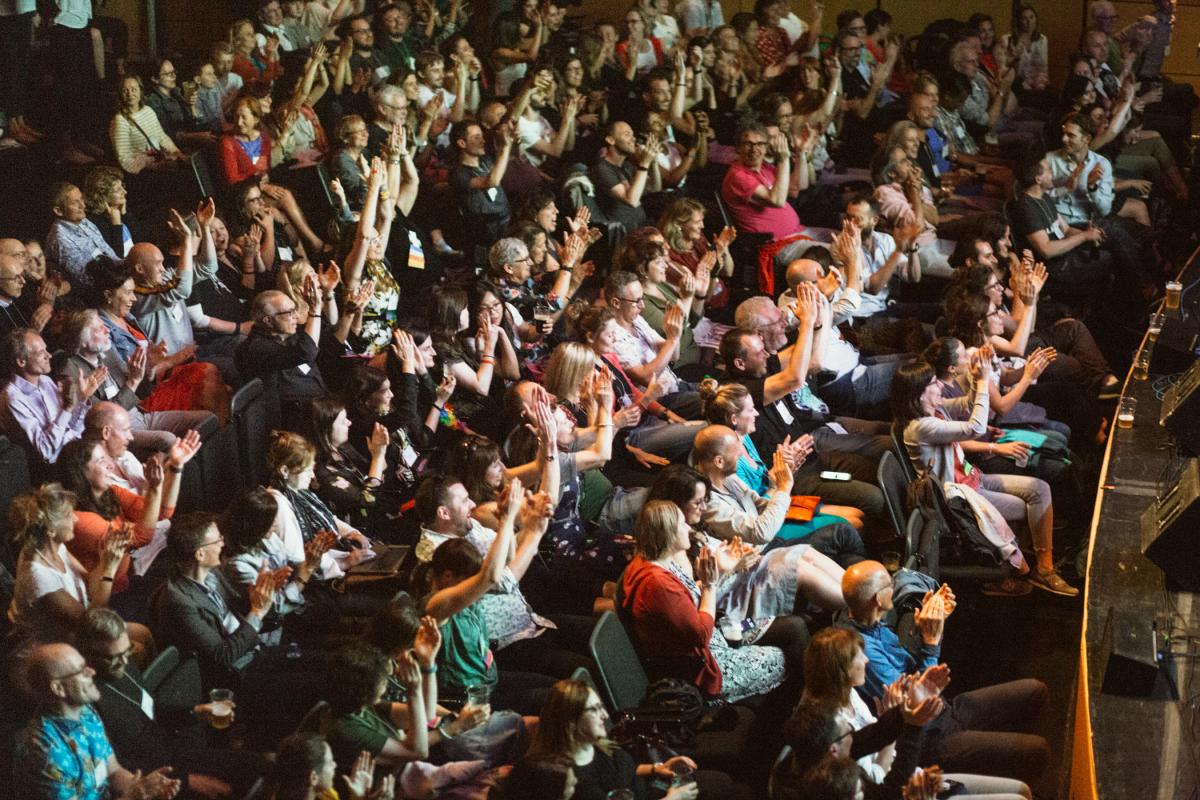
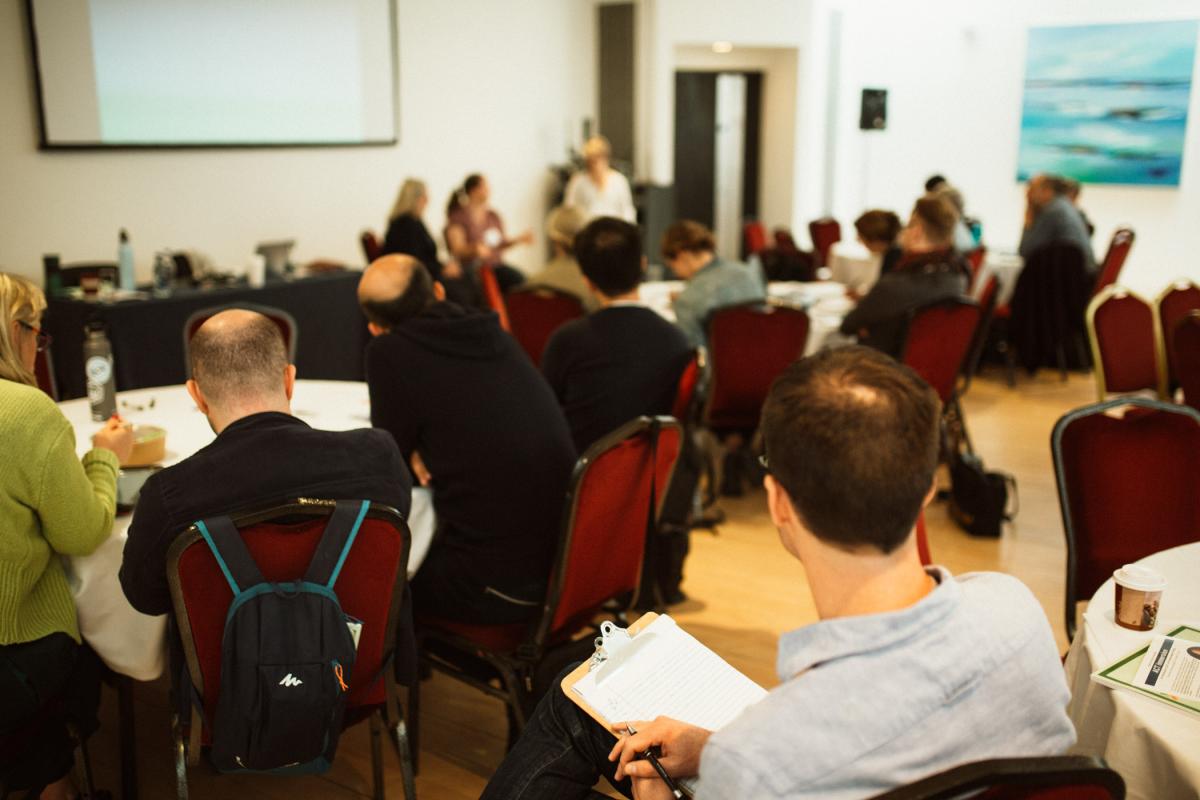
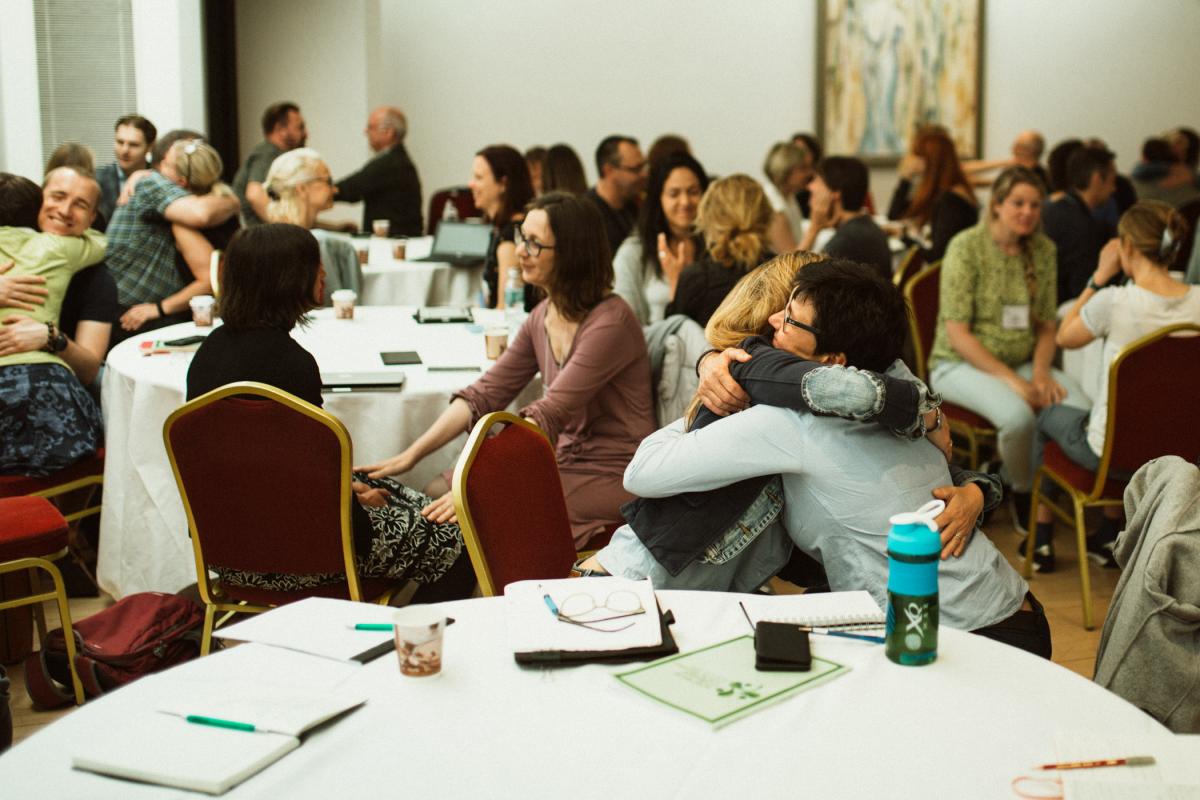
Bookstore
BookstoreACBS will have a number of books available for sale at discounted or list prices.
Titles and links to discounted books will be added here.
New Harbinger is the major contributor to our bookstore this year, contributing more than 150 CBS titles.
Please go here to shop their special ACBS bookstore for a 25% discount on all of their titles.
Like:
ACT-Informed Exposure for Anxiety
ACT with Love
ACT Workbook for Anger
Out of the Fire
Process-Based CBT
and more!
Other books available at a discount:
Acceptance and Commitment Skills for Perfectionism and High-Achieving Behaviors
Discount code: AEVV23
Acceptance and Mindfulness Toolbox for Children & Adolescents
Discount code ACBS2023
The Acceptance and Commitment Therapy (ACT) Diary 2023
Discount code: ACBS0723
The Acceptance and Commitment Therapy (ACT) Journal
Discount code: ACBS0723
Accepting Gender
Discount code: ACBSCYPRUS
The ACT Approach
Discount code: ACBS2023
ACT Art Therapy
Discount code: ACBSCYPRUS
The ACT Deck
Discount code: ACBS2023
The ACT Flip Chart
Discount code: ACBS2023
ACT for Gender Identity
Discount code: ACBSCYPRUS
ACT for Your Best Life
Discount code: ACBS2023
ACT in Steps: A Transdiagnostic Manual for Learning Acceptance and Commitment Therapy
Discount code: ASPROMP8
ACT with Anxiety
Discount code: ACBS2023
The ACT Workbook for Teens with OCD
Discount code: ACBSCYPRUS
Facing the Storm (2nd ed)
Discount code: AIK23
Integrative Psychotherapy: A Mindfulness- and Compassion-Oriented Approach
Discount code: ACBS23
Living Beyond OCD Using Acceptance and Commitment Therapy
Discount code: AEVV23
Living with the Enemy: Coping with the Stress of Chronic Illness using CBT
Discount code: AIK23
Living Your Best Life: Acceptance-Based Guided Self-Help for People with Intellectual Disabilities
Discount code: ACBS0723
The Oxford Handbook of Acceptance and Commitment Therapy
Discount code: ASPROMP8
The Psychosis and Mental Health Recovery Workbook
Discount code: ACBSCYPRUS
Tired of Anxiety - A Kid's Guide to Befriending Scary Thoughts and Living Your Life Anyway
Discount code: ACBS0723
Trichotillomania: An ACT-enhanced Behavior Therapy Approach, Therapist Guide, 2e
Discount code: ASPROMP8
Trichotillomania: An ACT-Enhanced Behavior Therapy Approach, Workbook, 2e
Discount code: ASPROMP8
WC2023 In-Person Bookstore
WC2023 In-Person BookstoreHOW TO BUY BOOKS:
All books have QR codes on the back that you may scan with your phone. Most are available for purchase at a discounted conference rate (hardcopy and/or eBook).
A few books have multiple copies available for sale. You will know this as multiples will be on the bookstore tables. You may purchase these via Euros (cash), PayPal, or Credit Card. (PayPal and Credit Card transactions will be done in USD.)
WANT A BIG DISCOUNT?
OK TO COLLECT YOUR BOOK LATE THURSDAY OR FRIDAY?
HOW TO BUY THE 1 INSEPECTION COPY:
All books in the bookstore are for sale. For most books there is only 1 physical inspection copy. It is available for purchase at a large discount. You may pay via Euros (cash), PayPal, or Credit Card. (PayPal and Credit Card transactions will be done in USD.)
To buy an inspection copy, you must purchase the book to “save” it, and then it will remain in the bookstore until you collect it late on Thursday or on Friday. You cannot collect your Inspection copy until the last coffee break on Thursday afternoon, 27 July, or Friday, 28 July (before 16:15), so that others may have the opportunity to see the book.
We cannot hold an inspection copy without payment. Any books not collected by Friday will be donated to the local chapter.
ACBS cannot mail books. Purchase of inspection copies are final. Refunds are not available. Purchased books must be collected by Friday, 28 July before 16:15). Inspection Copies with a small green “SOLD” sticker on the back have already been purchased.
Bookstore Hours:
- Monday, 24 July 08:15 – 17:30
- Tuesday, 25 July 08:30 – 16:30
- Wednesday, 26 July 08:00 – 18:00
- Thursday, 27 July 08:30 – 16:15
- Friday, 28 July 08:30 – 16:15
Conference Awards & Scholarships
Conference Awards & ScholarshipsACBS Junior Investigator Poster Award:
The purpose of this award is to recognize and help develop junior investigators conducting research in contextual behavioral science and who are presenting the results of this research at the Association's annual meeting.
ACBS Student Spotlight Program: (Accepted March 1- March 31)
The Student Spotlight Program highlights students who are doing important work in the CBS community whether for research, clinical, and/or volunteer-humanitarian efforts. It is a way to highlight their achievements, let the ACBS community know important work students are doing, and provides a platform for mentoring/collaboration/professional development/conversations around highlighted areas.
Developing Nations World Conference Scholars: (Application closes February 1)
ACBS is an international society but in many corners of the world it is difficult for professionals to attend ACBS conferences and trainings due simply to cost. The Developing Nations Fund helps disseminate CBS in the developing world and provides scholarships for attendees and presenters from developing nations to attend the world conference.
Diversity, Equity, and Inclusion World Conference Scholars: (Application closes February 1)
The Diversity, Equity, and Inclusion Committee is aiming to bring increased diversity to our annual conferences by providing funds for individuals who come from diverse backgrounds and who would not be able to attend an ACBS conference without this added financial support. Both trainees and professionals are eligible for this competitive award.
Early Career Research Paper Award: (Accepted papers will be emailed regarding eligibility)
The Award recognizes an outstanding empirical research abstract from an early career researcher, with the goal of stimulating that person’s long term participation in the ACBS conference as an outlet for presenting empirical science within the broad domain of CBS.
Michael J. Asher Student Dissertation Award: (Application closes February 1)
This award is given to students based on their doctoral dissertation proposal related to the use of Contextual Behavioral Science with children/adolescents. Michael J. Asher, Ph.D., ABPP passed away in 2016 and was a clinical psychologist at Behavior Therapy Associates, P.A. since 1988. He was passionate about his work, loved psychology, cognitive behavior therapy, and especially enjoyed learning about and practicing Acceptance and Commitment Therapy (ACT).
ACBS Foundation Student Scholarship: (Application closes February 15)
The goal of the ACBS Foundation is to support existing activities within ACBS and explore areas for future development. The ACBS Foundation Student Scholarship that will cover the full student registration fee for attending the annual ACBS World Conference.
Student World Conference Scholars: (Application closes February 15)
The mission of the ACBS Student Special Interest Group is to work to support students of contextual behavioral science by advocating for their professional and personal development and facilitating their contribution to ACBS and the larger community. One step in moving towards this mission has been to create a Student World Conference Scholarship that will help subsidize the costs of attending the annual ACBS World Conference.
Conference Registration
Conference RegistrationRegistration has now concluded for 2023, thank you for joining us!
Viewing of recorded content ends 23 October.
IN-PERSON Conference registration includes access to all sessions presented in Cyprus (26-28 July) and all content available to our virtual attendees.
- Discounted rates are available for professionals in Emerging Economy nations (Tiers 2 & 3 here). These discounts match the prevailing student rate.
- Prices above include three lunches, twice daily coffee/tea on site, and a general certificate of attendance.
- Ability to earn CEs for different disciplines, as available.
- Access to all content available to our virtual attendees during the conference and for three months after the conference (until 23 October 2023).
VIRTUAL Conference registration includes access to all LIVE AND RECORDED presentations here.
- Live, virtual stream of presentations happening in Cyprus (including plenaries). (26-28 July 2023) (barring any techincal difficulties)
- ***One live session at a time, will be simultaneously translated into SPANISH in the virtual platform. (Approximately 15 sessions, 26-28 July.)
- Any accepted and pre-recorded sessions provided by our presenters for on-demand viewing.
- All accepted (and received) posters.
- SIG and Chapter managed Zoom networking sessions (live only)
- Ability to interact with other virtual attendees via live chat.
- Ability to earn CEs for different disciplines, as available.
- Access to all of the live and recorded content above for three months after the conference (until 23 October 2023).
Please Note:
-
Additional fees are required for certificates that track the number of hours you attended (€10/$11 USD) and CE credits (€60/$65 USD). These fees cover all eligible sessions from 24-25 June & 24-28 July, and their recordings. You only need to pay the fee once to earn a certificate for all events you attend.
-
All rates in US Dollars.
-
1-day, in-person only, registration is available at varying rates per day.
-
We apologize that we may not be able to accommodate special meal requests (gluten free, vegan, allergies, etc.) for registrations received after 22 June 2023.
-
Payment will be accepted via Visa, Mastercard, JCB, or Bank Transfer to our European partner agency, Easy Conferences.
-
All access to recordings ends on 23 October 2023 regardless of the date of registration. (Example: Those registering on 23 September would only have 30 days of access.)
-
Guest tickets to evening events will be available closer to the date of the conference.
-
Registered event attendees who bring guests/family with them to any eligible events are wholy responsible for their guests.
-
-
NEED HELP? If you're having trouble registering, please email Christos at [email protected]
Member Rate Qualification
- Registration rates apply as you register. Subsequent memberships do not qualify those already registered for a refund of the difference between the member and non-member rates. The same is true for students, or other similar status and discounts, unless a full cancellation and refund are issued, and prevailing rates apply.
- Affiliate members (or non-members who are not professionals or students) may register at the professional rate. If you are currently receiving mental health care we encourage you to talk to your provider about the utility of this conference for you, prior to registering.
- Student Registration/Membership is available to individuals who are enrolled in a program of study leading to a bachelor’s, master’s, or doctoral degree, are interns, or are postdoctoral candidates. Postdoctoral candidates qualify for Student Registration for up to 2 years, with proof of status from their employer. After this time, they need to register as a Professional. Note: Those registering for the conference as a student are ineligible to earn any kind of CE credits.
Group Registration Discount
There is an available discount of 10% for registrant groups of 5 or more from the same business, who pay in one bank transfer or one credit card payment. This discount is valid only for Professional Member or Professional Non-Member rates for those from Tier 1 countries. (Other categories are not eligible, due to already discounted pricing.) 10% discount is valid on In-Person Conference, Virtual Conference, In-Person Pre-Conference Workshops, Virtual Pre-Conference Workshops only. (Certificates, CEs, guest passes, etc. do not qualify for discounts.) Offer valid on registrations made by 22 June, 2023. The discount is not applicable to anyone registering as a student. Group discounts may not be combined with any other discount.
Cancellation of Pre-conference and/or World Conference registration must be submitted in writing via email and must be dated on or before 5:00 p.m. Eastern European Summer Time, on 22 June 2023 to [email protected] to receive a refund minus a €25 registration cancellation processing fee.
We regret that after 22 June, refunds cannot be made, however we will allow a substitute registrant (they can receive access and a certificate in their name). If you need a refund, please contact us via email. (Note: Shared registrations are not permissible... meaning that you can't attend one day and your colleague the next, etc.) No refunds will be granted for no-shows.
It is the responsibility of the registrant to make sure that they have received information related to virtual conference access. If you are registered and do not receive an email granting you pre-conference access (as appropriate) by the morning of 23 June 2023, or World Conference access by 24 July 2023, or within 3 hours of registering (between 26-28 July 2023), please contact [email protected].
Cancellation of Pre-conference and/or World Conference registration must be submitted in writing via email and must be dated on or before 5:00 p.m. Eastern European Summer Time, on 22 June 2023 to [email protected] to receive a refund minus a €50 registration cancellation processing fee.
Changes from in-person registration to virtual registration prior to 22 June incur a €25 registration cancellation processing fee.
We regret that after 22 June, refunds cannot be made, however we will allow a substitute registrant (they can receive access and a certificate in their name). If you need to make a substitution, please contact us via email. (Note: Shared registrations are not permissible... meaning that you can't attend one day and your colleague the next, etc.)
No refunds will be granted for no-shows.
Photographs/Video:
ACBS intends to take photographs and video of this event for use in ACBS newsletters and promotional material, in print, electronic and other media, including the ACBS website and social media accounts. By participating in this event, I grant ACBS the right to use any image, photograph, voice or likeness, without limitation, in its promotional materials and publicity efforts without compensation. All media become the property of ACBS. Media may be displayed, distributed or used by ACBS for any purpose.
Attendees of the World Conference or Pre-Conference Workshops are not permitted to audio or video-record sessions without the express written permission of ACBS.
If you have any concerns regarding the media policy, please feel free to contact us.
Waiver of Liability:
As a condition of my participation in this meeting or event, I hereby waive any claim I may have against the Association for Contextual Behavioral Science (ACBS) and its officers, directors, employees, or agents, or against the presenters or speakers, for reliance on any information presented and release ACBS from and against any and all liability for damage or injury that may arise from my participation or attendance at the program. I further understand and agree that all property rights in the material presented, including common law copyright, are expressly reserved to the presenter or speaker or to ACBS. I acknowledge that participation in ACBS events and activities brings some risk and I do hereby assume responsibility for my own well-being. If another individual participates in my place per ACBS transfer policy, the new registrant agrees to this disclaimer and waiver by default of transfer.
Conference Code of Conduct and Liability/Media Waiver
Conference Code of Conduct and Liability/Media WaiverConference Code of Conduct Policy
Code of Conduct
The ACBS World Conference is designed to increase interaction, engagement, collaboration, connectivity and community, in a fun and safe learning environment.
We value the participation of each member of the community and endeavor to deliver an enjoyable and fulfilling experience. Conference participants are expected to conduct themselves with integrity, courtesy and respect for others and maintain the highest level of professionalism at all conference programs and events, whether officially sponsored by ACBS or not. Disruptions that interfere with the conference experience for other attendees are not permitted. All attendees, speakers, organizers, volunteers, partners, vendors and staff at any ACBS event are required to observe the following Code of Conduct.
Our conference is dedicated to providing a harassment-free conference experience for everyone, regardless of gender, gender identity and expression, age, sexual orientation, disability, physical appearance, body size, race, ethnicity, religion (or lack thereof), or technology choices. We do not tolerate harassment of conference participants in any form. Sexual language and imagery is not appropriate for any conference venue, including talks, workshops, parties, Twitter and other online media. Conference participants violating these rules may be sanctioned or expelled from the conference without a refund at the discretion of the conference organisers.
Harassment includes offensive verbal comments related to gender, gender identity and expression, age, sexual orientation, disability, physical appearance, body size, race, ethnicity, religion, technology choices, sexual images in public spaces, deliberate intimidation, stalking, following, harassing photography or recording, sustained disruption of talks or other events, inappropriate physical contact, and unwelcome sexual attention.
Be kind to others. Do not insult or defame participants. Harassment in any form, sexist, racist, or exclusionary jokes are not condoned at the ACBS World Conference.
Participants violating these rules may be asked to leave the conference without warning at the sole discretion of ACBS.
Participants asked to stop any harassing behavior are expected to comply immediately.
If you are being harassed, notice that someone else is being harassed, or have any other concerns, please contact a member of conference staff immediately. You can contact ACBS staff via email at [email protected] or [email protected]
Thank you for helping to make this a welcoming event for all.
Liability/Media Waiver
As a condition of my participation in this meeting or event, I hereby waive any claim I may have against the Association for Contextual Behavioral Science (ACBS) and its officers, directors, employees, or agents, or against the presenters or speakers, for reliance on any information presented and release ACBS from and against any and all liability for damage or injury that may arise from my participation or attendance at the program. I further understand and agree that all property rights in the material presented, including common law copyright, are expressly reserved to the presenter or speaker or to ACBS. I acknowledge that participation in ACBS events and activities brings some risk and I do hereby assume responsibility for my own well-being. If another individual participates in my place per ACBS transfer policy, the new registrant agrees to this disclaimer and waiver by default of transfer.
Attendees of the World Conference are not permitted to audio or videorecord sessions without the express written permission of ACBS.
ACBS intends to take photographs and video of this event for use in ACBS newsletters and promotional material, in print, electronic and other media, including the ACBS website and social media accounts. By participating in this event, I grant ACBS the right to use any image, photograph, voice or likeness, without limitation, in its promotional materials and publicity efforts without compensation. All media become the property of ACBS . Media may be displayed, distributed or used by ACBS for any purpose.
Audio and video will be captured and recorded during the live (real time) completely virtual sessions. If participating virtually, it is the responsibility of the attendee to turn off their audio and/or video settings if they don't wish to be part of the recording.*
If you have any concerns regarding the media policy, please feel free to contact us.
Policy Concerning the Use of AI Notetaking Tools During ACBS Events
Policy Concerning the Use of AI Notetaking Tools During ACBS EventsWith the advent of advanced technologies, AI notetaking tools have emerged as popular aids in capturing and transcribing meeting presentations and discussions. However, the use of such tools raises pertinent concerns regarding privacy, security, and the integrity of the information shared within these meetings.
ACBS is committed to protecting the confidentiality and privacy of all event participants. Sensitive information shared during events should be treated with the utmost discretion, and participants are encouraged to refrain from using any external devices or applications that may compromise this confidentiality.
Scope of the Policy
This policy applies to all attendees and presenters who participate in events at or sponsored by ACBS. It encompasses both virtual and in-person events, and covers all types of AI notetaking tools, including but not limited to transcription software, voice recognition applications, and automated meeting assistants.
Policy Guidelines
Prohibition of AI Notetaking Tools
During events, the use of any AI notetaking tools is prohibited. Participants are expected to rely on traditional methods of notetaking to ensure the confidentiality and security of the discussion.
Exceptions to the Policy
In certain circumstances, the use of AI notetaking tools may be permitted with prior approval from ACBS. Such exceptions will be evaluated on a case-by-case basis, considering factors such as the nature of the event, the sensitivity of the information discussed, accessibility related issues (including translation), and the potential benefits of using AI tools.
Implementation and Enforcement
Communication of the Policy
The policy will be communicated to all attendees and presenters through official channels, including the organization's intranet, email notifications, and training sessions. Participants will be reminded of the policy prior to the event, via email, to ensure compliance.
Monitoring and Compliance
Event organizers and presenters are responsible for monitoring adherence to the policy. In virtual settings, AI notetaking tools will be removed from events. No refunds will be provided.
Review and Revision
The policy will be reviewed periodically to ensure its relevance and effectiveness. Any amendments to the policy will be communicated to all relevant parties in a timely manner.
Conclusion
This policy on AI notetaking tools during events is a measure aimed at protecting intellectual property, sensitive information, and fostering a secure communication environment. By adhering to this policy, participants can contribute to a culture of trust and reliability, where the privacy and accuracy of event presentations and discussions are preserved.
Continuing Education (CE) Credits
Continuing Education (CE) Credits
Type of Credit Available: 
- CE credit for psychologists
CE credit is available for psychologists for live and select recorded sessions (not all recorded sessions eligible, look for "Psychologists - Recorded" tag on session pages for confirmation, as well as the existence of a post-test, which is required for earning CEs for recorded viewing).
To earn credit for watching RECORDED sessions, you must watch the complete session and successfully pass a quiz with a 75% or higher score. You must complete and pass the required post-test quizzes by 30 October, at the latest.
CE certificates with the total of your live credits will be emailed to you by 28 September. CE certificates with the total of your recorded session credits will be emailed to you by 25 November.
The Association for Contextual Behavioral Science is approved by the American Psychological Association to sponsor continuing education for psychologists. The Association for Contextual Behavioral Science maintains responsibility for this program and its content.
- CE credit for BCBAs is available for select events

Certificate with Number of Hours Attended
As an alternative to a CE certificate, some credentialing agencies (please check with yours) may accept a certificate with the number of hours attended. This requires that an individual verifies their attendance by signing in and out of each session that they attend during the event. The certificate will only include the hours of the sessions you attend LIVE during the conference (any recordings you watch will NOT be included). The cost for this type of certificate is €10.
Not sure if you need CEs?
Check with your licensing agency, and/or sign in/out on the yellow sheets provided, and you can determine your eligibility immediately after the event (still adhering to the evaluation deadlines mentioned above). If you do not scan or sign in/out, or complete necessary evaluations by the deadline, that cannot be “corrected” later.
Information about the CE Process
CEs or certificates with the number of hours attended are available for a one-time fee for the entire event.
CE rules require that we only issue credits to those who attend the entire session. Those arriving more than 15 minutes late or leaving before the entire session is completed will not receive CE credits.
Evaluations will be available, but are not required to earn CE credits.
For those earning CEs for BCBAs, we will email you a printable copy of your certificate by 28 September.
For those earning CEs for psychologists, CE certificates with the total of your live credits will be emailed to you by 28 September. CE certificates with the total of your recorded session credits will be emailed to you by 25 November.
All certificates are sent via SimpleCert, so check your email for "[email protected]".
For those attending in-person, in Cyprus 24-28 July:
Please remember to scan in and out at the beginning and end of each session using our scanner system. If there is a problem and the scanners are not working, please make sure to sign in and out on the yellow attendance sheet provided. We cannot give CE credit if you do not scan/sign in and out.
Please DO NOT SCAN in and out for coffee/tea breaks. CE credits are NOT available for IGNITE sessions, Chapter/SIG/Committee meetings, or other lunch time sessions.
Fees:
A €60 fee will be required to earn CEs. If you attend either a pre-conference workshop(s), World Conference, or both, only €60 is due. If you register for multiple events separately, please only pay the fee one time. This fee is non-refundable (unless you cancel your registration in its entirety before the cancellation deadline). Attendance verification (sign in/out) and evaluations also may be required.
The cost for a certificate indicating only the number of contact hours (not a CE certificate) is €10.
Refunds & Grievance Policies: Participants may direct any questions or complaints to ACBS Executive Director Emily Rodrigues, [email protected], or through the Contact Us link on this website.
- CEs are only available for events that qualify as workshops, symposia, invited lecture, panel discussion, or plenary sessions. Poster sessions, IGNITE sessions, sessions shorter than 1 hour, Chapter/SIG/Committee meetings, and some other specialty sessions do NOT qualify for Continuing Education credit.
- (Note: CE credits are only available for those registered as a professional. You may not earn CE credits with a student registration.)
WC2023 CEs for Psychologists - Post-test links
WC2023 CEs for Psychologists - Post-test linksFor those earning CEs for Psychologists - Recorded
Credit is available for sessions indicated (on the specific session page) for watching RECORDED sessions AND successful completion of post-test quizzes. To earn credit for watching RECORDED sessions, you must watch the complete session and successfully pass a quiz with a 75% or higher score.
LIVE attendance at a session (26-28 July) means you DO NOT need to complete a post-test quiz for that session.
You must complete and pass the required post-test quizzes by 30 October, at the latest. CE certificates with the total of your live credits will be emailed to you by 28 September. CE certificates with the total of your recorded session credits will be emailed to you by 25 November. All certificates are sent via SimpleCert, so check your email for "[email protected]".
Credit is NOT available for watching any recordings for BCBA CEs or a general certificate of attendance with hours.
Note: A €60 fee will be required to earn CEs. Find more information here.
Links to the post-tests will be availble after the recordings are online.
1. Using models and ontologies to enable behaviour change
2. Acceptance - How do I actually use and teach it now?
Recorded CEs for Psychologists not available for this session.
7. End the Insomnia Struggle: Individualizing CBT-I Using ACT
Recorded CEs for Psychologists not available for this session.
9. Mind, Body, SAC: CBS and Our Spiritual Dimension
10. Acceptance and Commitment Therapy for Managing Cravings and Addictive Behaviors
11. United we stand: Working with cultural values building on ACT and Prosocial Model
12. The contribution of interbehaviorism
13. CBS Competencies in Psychotherapy: The Good, The Bad, and the Need
Recorded CEs for Psychologists not available for this session.
Recorded CEs for Psychologists not available for this session.
17. ACT in health: The experience of patients and their families in facing illness
Recorded CEs for Psychologists not available for this session.
19. The Use of Digital Technology in ACT-Based Assessment and Intervention
20. Learning and Teaching Process Based Approaches to Therapy – Reflections From the Field
21. How does this end? An empirical account of therapy termination
Recorded CEs for Psychologists not available for this session.
25. Investigating the Underlying Processes Beyond our Self-Labels
26. The use of chairwork to develop psychological flexibility: Taking perspective on human yearnings
27. Flexibility around the clock: How to promote a less rigid and values-based approach toward sleep
29. Values Traps: Recognizing and Mastering Common Obstacles when Harnessing Values in ACT
30. One day ACT workshops for individuals with distress and/or chronic health conditions
31. The practicalities of using ACT and RFT interventions with children and young people
33. Are we there yet? Digitally moving towards the future of contextual behavior science
34. Switch - Using an improv theater game as experiential deictic framing during sessions
35. Psychological Flexibility in Education: School-Based and Values-Based Approaches
Recorded CEs for Psychologists not available for this session.
39. ACT for improving the lives of children, adolescents, and families across the world
Recorded CEs for Psychologists not available for this session.
44. Using Tech to Improve Practicing or Researching ACT as a Form of Process-Based Therapy
46. Self-compassion in supervision and transformation of work-related stress
Recorded CEs for Psychologists not available for this session.
Recorded CEs for Psychologists not available for this session.
53. Working with the self in the context of moral injury treatment
54. Essentials in psychotherapy: Join us in a treasure hunt
55. Hybrid East Asian and Western Perspectives on ACT
56. ACT for kids: Taking into account developmental process and social context in a CBS perspective
Recorded CEs for Psychologists not available for this session.
Recorded CEs for Psychologists not available for this session.
59. The Unknown Place Game - A Brief Intervention to Navigate Life, Therapy and Change Processes
Recorded CEs for Psychologists not available for this session.
61. Promoting University Students Mental Well-being through digital ACT-based University Services
62. Finding your home in ACBS: How to get (more) connected and involved
64. Process-based Approaches for Community Resilience: Essential skills and procedures
66. Parenting in focus! Findings from CBS research
Recorded CEs for Psychologists not available for this session.
Recorded CEs for Psychologists not available for this session.
69. Applications of derived relational responding
70. Psychological Flexibility for Improving Mental Health and Reducing Burnout of Healthcare Staff
Recorded CEs for Psychologists not available for this session.
72. The Stories We Tell: Understanding Self-as-Context and How to Use It Effectively
73. Once More, With Feeling: Bringing the Feeling Body into the Therapy Room
74. A Song in Your Heart: Finding Your Way & Finding Your Why with Musical Exercises
76. The Power Threat Meaning Framework: A conceptual alternative to the diagnostic model of distress
Recorded CEs for Psychologists not available for this session.
81. A non-geeky, pragmatic introduction into functional contextualism for ACT-therapists
Recorded CEs for Psychologists not available for this session.
Recorded CEs for Psychologists not available for this session.
Recorded CEs for Psychologists not available for this session.
93. Buddhist contributions for working practically and experientially with self-as-context
Recorded CEs for Psychologists not available for this session.
97. What Does No Self and Nonduality Have to Do With ACT Practice?
98. Poetry: Finding a Home in the World
Recorded CEs for Psychologists not available for this session.
Recorded CEs for Psychologists not available for this session.
103. Existence, Death, and Meaning: ACT and endings
104. Visual case formulation models to support ACT-based treatments
105. ACT in the Workplace: Nurturing Supportive Environments Within and Across Teams
107. Waiting for the sword to drop: concrete tools for being with uncertainty
Recorded CEs for Psychologists not available for this session.
109. Interdisciplinary teams: The role of Applied Behavior Analysts in the hospital system
110. Treating Eating Disorders from an ACT Perspective
111. Optimizing Health and Wellbeing with Mindfulness/Acceptance-Based Approaches
112. Strengthening Parents with ACT and Compassion-based Interventions
113. The Visual Analysis of Acceptance and Commitment Therapy: Flexible Data Collection
Recorded CEs for Psychologists not available for this session.
118. The healing power of Acceptance and Commitment Therapy in a hospital setting
119. Applied Behavior Analysis and Trauma: Assessment, Implementation, and Collaboration
202. Using Exposure to Strengthen Self-as-Context
203. ACT-Informed Psychedelic Integration
204. ACT-Informed Exposure for Clients Who Couldn’t Care Less About ACT
208. ACTion in Psychosis Recovery
210. Compassionate Mind Training for Healthcare Professionals
Recorded CEs for Psychologists not available for this session.
214. Breathing Compassion into ACT with the Compassion Focused ACT (CFACT) Case Formulation Model
Recorded CEs for Psychologists not available for this session.
217. CFT with Adolescents: Addressing the Fallout of the Pandemic
220. Variation with Vignettes - Special Edition: Back to Basics with Clinical Behavior Analysis
Recorded CEs for Psychologists not available for this session.
224. Innovations in Remote and Technology-Assisted Acceptance Based Interventions
227. Bridging the Gap: A Review of Recent Advances in Perspective-Taking Assessment and Training
General Schedule of Events - 24-25 June and 24-28 July 2023
General Schedule of Events - 24-25 June and 24-28 July 2023
| *All times are in Nicosia's local time zone (Eastern European Summer Time - EEST) | |||
| MONDAY, 24 JULY 2023 | |||
| 8:00am-5:15pm | Onsite Pre-Conference Workshop Registration | ||
| 9:00am-5:15pm | IN-PERSON Pre-Conference Workshops | Coffee/Tea, 10:45am-11:15am | |
| Lunch, 1:00pm-2:15pm | |||
| Coffee/Tea, 3:45pm-4:15pm | |||
| TUESDAY, 25 JULY 2023 | |||
| 8:00am-5:15pm | Onsite Pre-Conference Workshop Registration (Conference attendees may begin to register after 2:15pm) | ||
| 9:00am-5:15pm | IN-PERSON Pre-Conference Workshops | Coffee/Tea, 10:45am-11:15am | |
| Lunch, 1:00pm-2:15pm | |||
| Coffee/Tea, 3:45pm-4:15pm | |||
| 6:30pm-8:30pm | Onsite Conference Registration (location TBD, same as evening social) | ||
| 7:00pm-8:30pm | Welcome Cocktail and Chapter/SIG Social, Chapter & SIG Event. Location Chateau Status, Markou Drakou 12, Nicosia 1102, Cyprus (west side of the city center, 15 minute walk from Eleftheria Square). For those of you who are driving to the venue, there are parking places before reaching the restaurant on the left side. (Drinks/snacks; Conference Badge required for entry) | ||
| WEDNESDAY, 26 JULY 2023 | |||
| 7:30am-4:30pm | Onsite Conference Registration | ||
| 8:00am-8:50am |
First Timer Event - Information and Networking (Location: ΧΩΔ02 “Teaching Building”, Room 008, Ground Floor) |
||
| 8:00am-8:50am | Chapter/SIG/Committee Meetings | ||
|
9:00am-5:15pm
|
Conference Sessions
|
Coffee/Tea, 10:30am-11:00am | |
| Break, 12:00pm-12:15pm | |||
| Lunch, 1:15pm-2:45pm | |||
| Coffee/Tea, 3:45pm-4:15pm | |||
| 5:15pm-6:45pm | Poster session & Presidential reception (beginning after the conclusion of the afternoon plenary in the Leventis indoor and outdoor area) (Drinks/Snacks) | ||
| THURSDAY, 27 JULY 2023 | |||
| 8:30am-4:30pm | Onsite Conference Registration | ||
| 8:30am-9:20am | Chapter/SIG/Committee Meetings | ||
|
9:30am-5:15pm
|
Conference Sessions
|
Coffee/Tea, 10:30am-11:00am | |
| Break, 12:00pm-12:15pm | |||
| Lunch, 1:15pm-2:45pm | |||
| Coffee/Tea, 3:45pm-4:15pm | |||
|
5:15pm-11:00pm |
Dinner and Follies! (Location: Galu Seaside, 34 Mesopotamias Street, Oroklini, Larnaca 7041) Busing provided from UCY after the afternoon Plenary session. For those of you who are driving to the venue, there are parking places available in front and opposite of the restaurant’s entrance. (Conference badge required for entry) |
||
| FRIDAY, 28 JULY 2023 | |||
| 8:30am-4:30pm | Onsite Conference Registration | ||
| 8:30am-9:20am | Chapter/SIG/Committee Meetings | ||
|
9:30am-5:30pm
|
Conference Sessions
|
Coffee/Tea, 10:30am-11:00am | |
| Break, 12:00pm-12:15pm | |||
| Lunch, 1:15pm-2:45pm | |||
| Coffee/Tea, 3:45pm-4:15pm | |||
Invited Speakers for World Conference 2023
Invited Speakers for World Conference 2023Plenary Speakers

Lucy Johnstone, PsyD
Dr Lucy Johnstone is a consultant clinical psychologist, author of 'Users and abusers of psychiatry' (3rd edition Routledge 2021) and ‘A straight-talking guide to psychiatric diagnosis’ (PCCS Books, 2nd edition 2022); co-editor of 'Formulation in psychology and psychotherapy: making sense of people's problems' (Routledge, 2nd edition 2013); and co-author of ‘A straight talking introduction to the Power Threat Meaning Framework’, 2020, PCCS Books) along with a number of other chapters and articles taking a critical perspective on mental health theory and practice. She is the former Programme Director of the Bristol Clinical Psychology Doctorate in the UK and has worked in Adult Mental Health settings for many years. She is Visiting Professor at London South Bank University and a Fellow of the Royal Society of Arts.
She was lead author, along with Professor Mary Boyle, for the ‘Power Threat Meaning Framework’ (2018), a British Psychological Society publication co-produced with service users, which outlines a conceptual alternative to psychiatric diagnosis. She currently works as an independent trainer, and lives in Bristol, UK.
Dr Johnstone will be giving the following presentation: The Power Threat Meaning Framework: A conceptual alternative to the diagnostic model of distress
Click here for a complete bio and session abstract.
Maria Karekla, Ph.D. 
Dr. Maria Karekla is a licensed clinical psychologist, and associate professor at the University of Cyprus where she heads the ACThealthy Clinical Psychology and Behavioral Medicine laboratory. She is a peer-reviewed acceptance and commitment therapy (ACT) therapy trainer, and presently serves as the President of ACBS, where she has been a fellow since 2019. She is also a fellow of the Society of Behavioral Medicine (SBM). She was nominated in 2017 for the National Literary Awards in the children/adolescents category, and also for her illustrations for the book. She has received numerous national and international awards and grants for her research work. In 2018, she was nominated as Cyprus Woman of the Year in the academic/researcher category.
Dr. Karekla will be giving the following presentation: Are we there yet? Digitally moving towards the future of contextual behavior science.
Click here for a complete bio and session abstract.
Susan Michie, FMedSci, FAcSS, FBA
Susan Michie, FMedSci, FAcSS, FBA is Professor of Health Psychology and Director of the Centre for Behaviour Change at University College London, UK. She is the Chair of WHO’s Behavioural Insights and Sciences Technical Advisory Group, participated in the Lancet’s Covid-19 Commission and served as an expert advisor on the UK Government’s Scientific Advisory Group in Emergencies and its Behavioural Science group. Susan is part of the UK’s Policy Research Unit in Behavioural Sciences, advising the UK’s Department of Health and Social Care. Professor Michie has served as Chair of the UK Food Standard Agency’s Social Sciences Advisory Committee and chaired the Academy of Social Science’s ‘Health of People’ project. Susan’s research focuses on behaviour change in relation to health and the environment: how to understand it theoretically and apply theory to intervention development and evaluation, and to evidence synthesis and translation.
Professor Michie will be giving the following presentation: Using models and ontologies to enable behaviour change
Click here for a complete bio and session abstract.
Pádraig Ó Tuama
Pádraig Ó Tuama is the host of On Being’s Poetry Unbound and also the author of Poetry Unbound; 50 Poems to Open Your Life. Profiled by The New Yorker, published in Poetry Ireland, the Harvard Review, The Kenyon Review and many others, he brings interests in conflict, language, religion and power to his work. From 2014-2019 he was the leader of the Corrymeela Community, Ireland’s oldest peace and reconciliation community. Ó Tuama has numerous professional accreditations in conflict, focusing particularly on dynamics of group conflicts.
Pádraig Ó Tuama will be giving the following presentation: Poetry: Finding a Home in the World
Click here for a complete bio and session abstract.
Invited Speakers
Vera Araújo-Soares, Lic. Psych; MSc, PhD, FEHPS
Vera is currently leading the Division on Prevention of the Center for Preventive Medicine and Digital Health (CPD) at the Medical Faculty Mannheim, Heidelberg University, Germany. Vera led the Behaviour Change programme in Fuse, the UK Clinical Research Collaboration Centre of Excellence for Translational Research in Public Health. She has also served as the 14th elected President of the European Health Psychology Society. Her research is theoretically grounded, applied, interdisciplinary and multi-methodological and funded by major funders such as the UK National Institute for Health Research and the Medical Research Council.
Vera Araújo-Soares will be giving the following presentation: Developing Behaviour Change Interventions for Self-Management in Chronic Illness
Click here for a complete bio and session abstract.
Tamar Black, Ph.D.
Dr. Black is an educational and developmental psychologist in Melbourne, Australia. She has 20 years of experience working as a school psychologist, and 21 years of experience in private practice, working with children, adolescents and parents. She is an approved supervisor with the Psychology Board of Australia and the APS College of Educational and Developmental Psychology. Tamar has trained extensively in ACT and has expertise in supervising psychologists in using ACT for treating children and adolescents. Tamar is an experienced and very enthusiastic ACT trainer and provides training to local and international organisations and professionals working with children around the world.
Dr. Black will be giving the following presentation: Using the ACT Kidflex with Children and Adolescents: Making ACT Practical, Engaging and Easy to Understand
Click here for a complete bio and session abstract.
Raimo Lappalainen, Ph.D.
Dr. Lappalainen is a professor in clinical psychology and psychotherapy at the Department of Psychology, University of Jyväskylä, Finland. A licensed psychologist and psychotherapist. He has acted as the vice head and the head of the Department of Psychology between years 2008-2013. He has over 25 years experience of Cognitive Behavioural Therapies (CBT) with expertise especially in the third wave CBT, acceptance and value –based interventions. Author of more than 100 scientific articles and books. Special expertise in applying and constructing web- and mobile-based psychological interventions. His main research interests are development of brief psychological interventions, including web- and mobile -based interventions for wellness management.
Dr. Lappalainen will be giving the following presentation: From Magis mobile games to Student Compass - Mobile technology to increase psychological flexibility in children, adolescents and young adults
Click here for a complete bio and session abstract.
Alexandros Lordos, Ph.D.
Dr. Lordos is currently an Assistant Professor of Clinical Psychology at the University of Cyprus. He also has served as Head of Learning and Innovation at the Centre for Sustainable Peace and Democratic Development, based in Brussels. He is also a member of the boards of directors of several private companies, visiting scientist at the School of Public Health of Harvard University and a senior associate of the International Peacebuilding Advisory Team. He is the writer of award-winning papers on peace and psychology.
Dr. Lordos will be giving the following presentation: Developing national infrastructures for multisystemic recovery and resilience: A process-based approach
Click here for a complete bio and session abstract.
2023 Invited Speakers - Bios and Abstracts
2023 Invited Speakers - Bios and AbstractsPlenary Speakers

Lucy Johnstone, PsyD
Dr Lucy Johnstone is a consultant clinical psychologist, author of 'Users and abusers of psychiatry' (3rd edition Routledge 2021) and ‘A straight-talking guide to psychiatric diagnosis’ (PCCS Books, 2nd edition 2022); co-editor of 'Formulation in psychology and psychotherapy: making sense of people's problems' (Routledge, 2nd edition 2013); and co-author of ‘A straight talking introduction to the Power Threat Meaning Framework’, 2020, PCCS Books) along with a number of other chapters and articles taking a critical perspective on mental health theory and practice. She is the former Programme Director of the Bristol Clinical Psychology Doctorate in the UK and has worked in Adult Mental Health settings for many years. She is Visiting Professor at London South Bank University and a Fellow of the Royal Society of Arts.
She was lead author, along with Professor Mary Boyle, for the ‘Power Threat Meaning Framework’ (2018), a British Psychological Society publication co-produced with service users, which outlines a conceptual alternative to psychiatric diagnosis. She currently works as an independent trainer, and lives in Bristol, UK.
The Power Threat Meaning Framework: A conceptual alternative to the diagnostic model of distress
The Power Threat Meaning Framework was published in 2018 by the British Psychological Society. Co-produced by a core team of psychologists and service users, with Dr Lucy Johnstone and Professor Mary Boyle as lead authors, it offers an alternative to more traditional models of mental health based on psychiatric diagnosis. It demonstrates the links between social factors such as poverty, discrimination and inequality, along with traumas such as abuse and violence, and the resulting emotional distress. In this way it helps to show that fear, despair, mood swings, and unusual experiences or beliefs are the result of ‘what happened to you’ not ‘what is wrong with you.’ The PTMF can be used to help people create more hopeful narratives about their difficulties, instead of seeing themselves as blameworthy, weak, deficient or ‘mentally ill’. It also shows why those of us who do not have an obvious history of trauma or adversity can still struggle to find a sense of self-worth, meaning and identity. The PTMF has attracted national and international attention.

Maria Karekla, Ph.D.
Dr. Maria Karekla is a licensed clinical psychologist, and associate professor at the University of Cyprus where she heads the ACThealthy Clinical Psychology and Behavioral Medicine laboratory. She is a peer-reviewed acceptance and commitment therapy (ACT) therapy trainer, and presently serves as the President of ACBS, where she has been a fellow since 2019. She is also a fellow of the Society of Behavioral Medicine (SBM). She was nominated in 2017 for the National Literary Awards in the children/adolescents category, and also for her illustrations for the book. She has received numerous national and international awards and grants for her research work. In 2018, she was nominated as Cyprus Woman of the Year in the academic/researcher category.
Are we there yet? Digitally moving towards the future of contextual behavior science.
Recently, the Task Force on the strategies and tactics of contextual behavioral science research released a white paper outlining that CBS research should be multilevel, process-based, multidimensional, prosocial, and pragmatic. This white paper outlines recommendations to maximize the impact of CBS as afield for a science “more adequate to the challenge of the human condition”(Hayes et al. 2021). Digital technologies offer opportunities for research andpractice to encapsulate these recommendations and springboard CBS research and practice to the next level. This presentation will provide an overview of the possibilities offered by the digital medium, and illustrate these with recent research from the ACThealthy laboratory.
.jpg)
Susan Michie, FMedSci, FAcSS, FBA
Susan Michie, FMedSci, FAcSS, FBA is Professor of Health Psychology and Director of the Centre for Behaviour Change at University College London, UK. She is the Chair of WHO’s Behavioural Insights and Sciences Technical Advisory Group, participated in the Lancet’s Covid-19 Commission and served as an expert advisor on the UK Government’s Scientific Advisory Group in Emergencies and its Behavioural Science group. Susan is part of the UK’s Policy Research Unit in Behavioural Sciences, advising the UK’s Department of Health and Social Care. Professor Michie has served as Chair of the UK Food Standard Agency’s Social Sciences Advisory Committee and chaired the Academy of Social Science’s ‘Health of People’ project. Susan’s research focuses on behaviour change in relation to health and the environment: how to understand it theoretically and apply theory to intervention development and evaluation, and to evidence synthesis and translation.
Using models and ontologies to enable behaviour change
Human behaviour lies at the heart of existential threats, such as climate change and pandemics. Changing behaviour is key to addressing them, whether of citizens, industry leaders, policymakers and others. Understanding behaviours in their can be helped by models of behaviour that allow a holistic assessment of behaviour and point to the kinds of interventions likely to be effective.One of the barriers to making more progress in developing effective interventions is the silos in which knowledge sits, which limits the accumulation of knowledge. People in different disciplines, sectors and countries use different language, often using the same terms for different things and different terms for the same things. Ontologies are ways of representing knowledge using shared vocabularies – present the Behaviour Change Intervention Ontology.

Pádraig Ó Tuama
Pádraig Ó Tuama is the host of On Being’s Poetry Unbound and also the author of Poetry Unbound; 50 Poems to Open Your Life. Profiled by The New Yorker, published in Poetry Ireland, the Harvard Review, The Kenyon Review and many others, he brings interests in conflict, language, religion and power to his work. From 2014-2019 he was the leader of the Corrymeela Community, Ireland’s oldest peace and reconciliation community. Ó Tuama has numerous professional accreditations in conflict, focusing particularly on dynamics of group conflicts.
Poetry: Finding a Home in the World
Contextual behavioral science takes the view that we relate to ourselves, each other, and our world, through language. The stories we tell can constrain or liberate us, can bring us closer, or push us apart. Poetry has occurred in every human culture and plays an essential role in our understanding of what it means to be human. What is it that this form of language — a form that stretches towards music — can show us? What might it offer us in terms of our connection to each other, to ourselves as clinicians, to our scientific inquiry and understanding about human behavior? Pádraig Ó Tuama will explore some poetry and suggest ways in which it describes, contains, disquiets, comforts, denounces and considers the human condition. He will explore the why, or function, of poetry, and its intuition and intelligence about human experience. These questions open up self-inquiry about how we make meaning in our lives, or use and create language to shape relationships to ourselves, each other, and our home in the world.
Invited Speakers

Vera Araújo-Soares, Lic. Psych; MSc, PhD, FEHPS
Vera is currently leading the Division on Prevention of the Center for Preventive Medicine and Digital Health (CPD) at the Medical Faculty Mannheim, Heidelberg University, Germany. Vera led the Behaviour Change programme in Fuse, the UK Clinical Research Collaboration Centre of Excellence for Translational Research in Public Health. She has also served as the 14th elected President of the European Health Psychology Society. Her research is theoretically grounded, applied, interdisciplinary and multi-methodological and funded by major funders such as the UK National Institute for Health Research and the Medical Research Council.
Developing Behaviour Change Interventions for Self-Management in Chronic Illness
Health care systems face pressures related to an increasing number of people living with chronic conditions: obesity, type 2 diabetes, and heart disease amongst others. For effective self-management behaviour change is needed as it can improve health outcomes and quality of life. Intervention development science aims to optimize the reach, effectiveness, adoption, implementation and maintenance of interventions. Developing and implementing an intervention should also require rigorous evaluation of outcomes and processes of behaviour change as doing this will contribute to intervention refinement and increase our understanding on human behaviour in context. The development of new services and technologies offers opportunities to enhance the scope of delivery of interventions to support behaviour change and self-management at scale. Here I will review key approaches to intervention development, provide a critical overview, and integrate these approaches into a pragmatic framework to rigorously guide decision-making in behaviour change intervention development. Moreover, I will highlight emerging issues pertaining to co-beneficial behaviours and will present a new vision on the role of health care professionals in this era of climate change.

Tamar Black, Ph.D.
Dr. Black is an educational and developmental psychologist in Melbourne, Australia. She has 20 years’ experience working as a school psychologist, and 21 years’ experience in private practice, working with children, adolescents and parents. She is an approved supervisor with the Psychology Board of Australia and the APS College of Educational and Developmental Psychology. Tamar has trained extensively in ACT and has expertise in supervising psychologists in using ACT for treating children and adolescents. Tamar is an experienced and very enthusiastic ACT trainer and provides training to local and international organisations and professionals working with children around the world.
Using the ACT Kidflex with Children and Adolescents: Making ACT Practical, Engaging and Easy to Understand
ACT can be used effectively with children and adolescents for a wide range of issues. This highly practical workshop will introduce you to the new ACT Kidflex: a developmentally appropriate adaptation of the ACT Hexaflex, along with simple and engaging techniques. Strategies will also be taught for how to enlist parents/caregivers as ‘ACT coaches’ and give them simple techniques to reinforce what the child/adolescent has learned in therapy sessions.

Raimo Lappalainen, Ph.D.
Dr. Lappalainen is a professor in clinical psychology and psychotherapy at the Department of Psychology, University of Jyväskylä, Finland. A licensed psychologist and psychotherapist. He has acted as the vice head and the head of the Department of Psychology between years 2008-2013. He has over 25 years experience of Cognitive Behavioural Therapies (CBT) with expertise especially in the third wave CBT, acceptance and value –based interventions. Author of more than 100 scientific articles and books. Special expertise in applying and constructing web- and mobile-based psychological interventions. His main research interests are development of brief psychological interventions, including web- and mobile -based interventions for wellness management.
From Magis mobile games to Student Compass - Mobile technology to increase psychological flexibility in children, adolescents and young adults
Many children, adolescents as well as young adults report increased psychological symptoms. There is a need for psychological support that exceeds the resources available at schools to support young people. Traditional problem oriented one-on-one treatment delivery approach require evidence-based alternatives that can be widely and easily disseminated. Technology-based treatment models, especially those focusing on training of psychological flexibility skills can allow a more flexible intervention delivery. Classroom-level and school-based interventions provide an opportunity for training of psychological flexibility skills and prevention of psychological problems among children, adolescents, and young adults.
We have developed two mobile-games, Magis – The Story of Runegrove for children aged 7-9 years and Magis – The Magical Adventure for children with 10 to 12 years that use a dialogue and problem-solving approach to enhance psychological flexibility skills. In addition, a web-based ACT intervention Youth Compass including a virtual coach is available for adolescents aged 13 to 17 years and a web-based intervention the Student Compass to support the psychological wellbeing of college students. A set of workbooks is provided for teachers to support the training of psychological skills in classroom. In addition, group interventions with handbooks are available at all age levels for more intensive training. I will present the two ACT-based mobile-games and the two web interventions as well as our experiences of acceptability and effectiveness of these solutions. Also, the role of different psychological flexibility skills in technology-based treatment models will be discussed.
Alexandros Lordos, Ph.D.
Dr. Lordos is currently an Assistant Professor of Clinical Psychology at the University of Cyprus. He also has served as Head of Learning and Innovation at the Centre for Sustainable Peace and Democratic Development, based in Brussels. He is also a member of the boards of directors of several private companies, visiting scientist at the School of Public Health of Harvard University and a senior associate of the International Peacebuilding Advisory Team. He is the writer of award-winning papers on peace and psychology.
Developing national infrastructures for multisystemic recovery and resilience: A process-based approach
Extreme societal adversity can lead to multisystemic dysfunction at the individual, familial, communal, and institutional levels. This talk focuses on a process-based approach for multisystemic recovery and resilience in extreme contexts based on public health research in Ukraine, South Sudan, Rwanda, and Ethiopia. Our approach utilizes participatory network analysis with community stakeholders to identify potential intervention targets and treatment kernels at different levels. On this basis, we selected or developed distinct group-based community interventions that address specific processes of change. Resilience-oriented therapy strengthens socio-emotional skills, multi-family healing spaces mitigate inter-generational trauma, sociotherapy reduces mistrust, while our manual for community-based enterprises supports vulnerable community members to overcome poverty. We will discuss how to bring interventions to regional or national scale through community-based coalitions that include local authorities, primary health care, the education sector, and NGOs. This approach has the potential to provide effective, evidence-based solutions that can improve the mental health and well-being of populations affected by extreme adversity and contribute to their long-term recovery and resilience, integrating interventions from mental health, peacebuilding, and livelihoods development.
Pre-Conference Intensive Workshops
Pre-Conference Intensive WorkshopsWhat to Expect
The 2023 Pre-Conference Workshops offer exciting new opportunities that will engage therapists and researchers of any skill level. Combining therapy role-plays, experiential exercises, case presentations, data graphics, focused lectures, and small group discussions, you can expect high-quality training from ACBS Pre-Conference Workshops. Continuing Education credits are available.
When & Where?
There will be in-person (24-25 July) workshops available. Pre-Conference workshop registration includes LIVE ONLY access to the workshop you select. These workshops will not be recorded.
ACBS Pre-Conference Workshops - IN-PERSON Event (24-25 July 2023)
These workshops will be held the two days immediately preceding the ACBS World Conference 2023.
Monday, 24 July 2023 from 9:00 a.m. to 5:15 p.m.
Tuesday, 25 July 2023 9:00 a.m. to 5:15 p.m.
(12 total contact hours)
They will be held at the University of Cyprus in Nicosia, Cyprus.
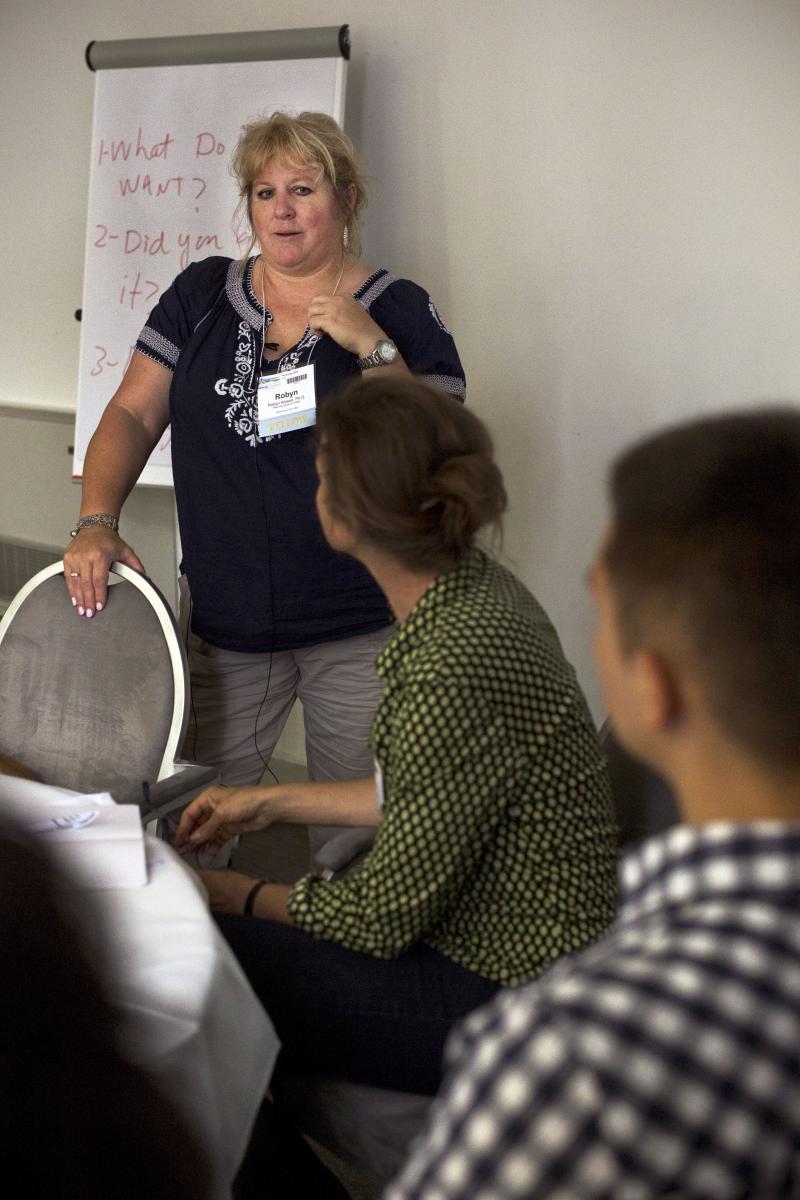 Robyn Walser, Ph.D.
Robyn Walser, Ph.D.
(Clinical; Beginner, Intermediate, Advanced)
Aisling Leonard-Curtin, M.Sc., C.Psychol., Ps.S.I., David Gillanders, DClinPsychol
(Clinical; Beginner, Intermediate, Advanced)
Steven C. Hayes, Ph.D., Gijs Jansen, Ph.D., Joseph Ciarrochi, Ph.D.
(Clinical, Research; Beginner, Intermediate, Advanced)
Louise McHugh, Ph.D. and Alison Stapleton, Ph.D.
(Clinical, Research, Applied (in non-clinical settings); Intermediate, Advanced)
Louise Hayes, Ph.D, Duncan Gillard, Ph.D
(Clinical, Applied (in non-clinical settings); Beginner, Intermediate, Advanced)
Niklas Törneke, MD, Rikke Kjelgaard, M.Sc.
(Clinical, Research, Applied (in non-clinical settings); Beginner, Intermediate, Advanced)
Mavis Tsai, Ph.D., Sarah Sullivan-Singh, Ph.D., Barbara Kohlenberg, Ph.D.
(Clinical, Applied (in non-clinical settings); Beginner, Intermediate, Advanced)
Additional information about registrations, refunds, etc., can be found here.
Acceptance and Commitment Therapy and Process-Based Work: Treating Trauma and Other Challenging Life Events
Acceptance and Commitment Therapy and Process-Based Work: Treating Trauma and Other Challenging Life EventsAcceptance and Commitment Therapy and Process-Based Work: Treating Trauma and Other Challenging Life Events

Tuesday, 25 July 2023 from 9:00 a.m. to 5:15 p.m.
Dr. Robyn Walser is the Director of TL Consultation Services, Staff at the National Center for PTSD, and is Assistant Clinical Professor at University of California, Berkeley. She maintains an international training, consulting, and therapy practice as a licensed psychologist. Dr. Walser is an expert in Acceptance and Commitment Therapy (ACT) and has co-authored 7 books, including Learning ACT. She also has expertise in traumatic stress and substance abuse and has authored a number of articles and chapters and books on these topics. She has been doing ACT workshops since 1998; training in multiple formats and for multiple client problems. She is invested in developing innovative ways to translate science into practice and continues to do research and education on dissemination of ACT. She has had a number of leadership roles in international and national organizations, and she served as President of the Association for Contextual Behavioral Science, Dr. Walser is best known for her dynamic, warm, and challenging ACT trainings. She is often referred to as a clinician’s clinician. Her workshops feature a combination of lecture and experiential exercises designed to provide a unique learning opportunity in this state-of-the-art intervention.
Following this workshop participants will be able to:
1. Describe what is meant by therapeutic presence from an ACT perspective.
2. Explain what is meant by ACT processes in the therapeutic relationship.
3. Explain the levels of process and their role in treating clients with a trauma history.
4. Describe barriers to fluid implementation of ACT and how to work through these barriers in an ACT-consistent fashion using trauma work as an example.
5. Describe intrapersonal process from an ACT perspective.
6. Explain the purpose of self-disclosure, its use in ACT, and its role in trauma treatment.
7. Describe interpersonal process from an ACT perspective.
8. Explore interpersonal work and feedback's purpose and use in ACT.
9. Describe how the ACT relationship is vital to client outcomes.
10. Explain how case conceptualization guides the arc of ACT therapy.
Target Audience: Beginner, Intermediate, Advanced, Clinical
Components: Conceptual analysis, Literature review, Original data, Experiential exercises, Didactic presentation, Case presentation, Role play
Package Includes: A general certificate of attendance
Cutting edge of metaphor use
Cutting edge of metaphor useCutting edge of metaphor use


Tuesday, 25 July 2023 from 9:00 a.m. to 5:15 p.m.
This practical and clinically oriented workshop is designed to help practitioners apply the conclusions from basic science in using metaphor in the therapeutic dialogue in a way that supports clinical change. Drawing from the latest metaphor research, participants will learn how to skilfully use as well as create their own mighty metaphors to both impact and transform the lives of their clients. Participants will learn the framework for spontaneously catching and building metaphors relevant to their client, and how to flexibly tweak these to fit central processes of change as well as tailoring these to different therapeutic goals.
Through didactic presentations, live demonstrations and analysis, experiential exercises and roleplays, participants will get the opportunity to learn and practice the why, when and how to flexibly use metaphors as powerful vehicles of change.
About Niklas Törneke, MD:
Niklas Törneke is a Swedish psychiatrist and licenced psychotherapist with more than 30 years experience of clinical work. He belongs to the original group of peer reviewed ACT trainers and is an awarded fellow of ACBS. Amongst other books, book chapters and articles on contextual therapy he is the author of Metaphor in practice. A professionals guide to using the science of language in psychotherapy (2017).
About Rikke Kjelgaard, M.Sc.:
Rikke Kjelgaard is a licensed psychologist, peer-reviewed ACT trainer, an awarded fellow of the Association for Contextual Behavioral Science, author, speaker and chief rock’n’roller in her own business. Rikke is on a mission to help therapists thrive and to be brave and authentic helpers. Trained as a clinical psychologist, she has a 15 year background in the science of human behaviour and the practice of behaviour change. Rikke is a popular speaker at the Scandinavian as well as the international stage, and she is known to bring both passion and vulnerability to her talks. She transforms the lives of her audience by bringing evidence based strategies to her listeners in ways that are edible, manageable and impactful. Rikke is known to leave her audience in tears with compelling stories from her own life and to create extraordinary interactions between people.
On completion of this workshop, participants will be able to:
- Describe the place of metaphor in human language
- Describe the framework by which metaphors are built
- Implement specific clinical principles in working with metaphors in therapy
- Demonstrate how to use already established clinical metaphors in a way that is informed by current scientific knowledge
- Construct new metaphors in a therapeutic dialogue, focusing relevant clinical targets
- Demonstrate the ability to catch metaphors spontaneously used by a client and use them according to basic principles for therapeutic change
- Co-create metaphors with a client, as part of a natural dialogue
- Create at least one metaphor based on their own personal story
- Tweak metaphors to fit different therapeutic goals
- Define which metaphors support the core processes of psychological flexibility
Target Audience: Beginner, Intermediate, Advanced, Clinical, Applied, Not Clinical
Components: Conceptual analysis, Experiential exercises, Didactic presentation, Case Presentation, Role play
Package Includes: A general certificate of attendance
Exploring self-criticism through a CBS lens: Facilitating the journey towards self-acceptance and self-compassion in both clinicians and clients
Exploring self-criticism through a CBS lens: Facilitating the journey towards self-acceptance and self-compassion in both clinicians and clientsExploring self-criticism through a CBS lens: Facilitating the journey towards self-acceptance and self-compassion in both clinicians and clients


Self-criticism is a transdiagnostic process at the heart of many mental health problems (Schanche 2013), including social anxiety (Gautreau, et al. 2015), depression, eating disorders (Porter, Zelkowitz and Cole 2018, Williams and Levinson 2022, Zelkowitz and Cole 2019), binge eating, body image concerns (Noordenbos, Aliakbari and R. 2014), hoarding (Chou 2018), self-harm, emotional dysregulation (Zelkowitz and Cole 2019), perfectionism, and suicide probability (O'Neill, et al. 2021). Criticism from others is also a common experience for people who experience marginalization and discrimination because of their gender and sexual orientation (Chen, et al. 2022), and minority status. The life-time experience of criticism from others often results in heightened self-stigma, self-criticism, and experiences of shame that drive mental health problems and need to be explicitly addressed within therapy.
Clinicians are also at risk of heightened self-criticism due to the ambiguous nature of our work, the high standards we set for ourselves and our urgency and desire to help others. Clinicians in training and early career clinicians are particularly vulnerable to heightened self-criticism due to frequent evaluations and uncertainty (Richardson, Trusty and George 2018). Ongoing self-criticism can contribute to professional burnout, stress, mental and physical health problems in professionals, and can result in experienced practitioners leaving the profession.
Both clinician and client can benefit from having a range of strategies to alleviate the impact of self-critical thoughts and generate new, more helpful ways of responding to self-critical thoughts. Furthermore, clinicians in supervisory or training roles are in a position where they can cultivate a more compassionate response to self criticism in the next generation of clinicians. To be effective, these strategies need to accommodate individual differences in information-processing, personal identity, minority status and personal preferences of the individual sitting in front of them, and for themselves. Not everyone is able to visualize or use imagery in exercises, sustain longer mindfulness activities in session, or implement daily mindfulness practices, yet would benefit from developing deeper skills in self-compassion.
This experiential workshop will explore the phenomenology of self criticism through a CBS lens for both clinician, supervisor, and client. Participants will be presented with a thorough conceptualization of self-criticism as an inherent element of language structure and learning that sits within a cultural, social and minority stress context, and contributes to mental health problems and self-stigma. Participants will explore different experiences of self-criticism and the close relationship this can have with shame and avoidance. The function of self-criticism as being both helpful and unhelpful self-criticism will be considered in the context of many people’s reluctance to let go of self-critical patterns.
Across each session, participants will explore different strategies to address the process of self-criticism, drawing from compassion-focused therapy, acceptance and commitment therapy and other behavioral and emotional-regulation approaches to develop a ‘tool-kit’ of options when working with diverse people and communities. In doing so, participants will develop a greater ability to navigate their own self-criticism and offer themselves compassion as a professional.
About Sarah Pegrum, Ph.D.:
Dr. Sarah Pegrum graduated from her combined Master of Psychology (Clinical)/Doctor of Philosophy at Australian Catholic University in 2010. She has gone on to practice in Newfoundland, Canada, specializing in body image and eating disorders. Dr. Pegrum’s practice is integrative and draws heavily from contextual behavioural science. She was introduced to Acceptance and Commitment Therapy (ACT) in 2007, and since that point in time she has attended multiple workshops, trainings and conferences to hone her knowledge and skills. Dr. Pegrum is passionate about training others in ACT, and has been providing workshops, consultation, and supervision since 2013. In 2022 she became a ACBS Peer Reviewed trainer. She is currently the president of the ACBS Atlantic Canada chapter and runs the ACTing with Body Image Facebook group and meetings.
About Jennifer Kemp, MPsych (Clinical):
Jennifer Kemp, BSc(Psych)Hons, MPsych(Clinical), GradDipApplSc(Psychology of Coaching), MAPS, FCCLP. Jennifer Kemp is a privately practicing Clinical Psychologist based in Adelaide who works with older adolescents and adults experiencing perfectionism, eating disorders, body image problems, life-long anxiety, obsessive-compulsive disorder (OCD), and chronic illness. Most of these clients are neurodivergent. Using a neurodiversity-affirming approach, Jennifer weaves together acceptance and commitment therapy (ACT), behaviour therapy and compassion-focused approaches to help her clients improve their mental health, develop self-compassion skills and move towards self-acceptance. Jennifer balances her practice with writing, presenting, and supervision consultations. She is the author of “The ACT Workbook for Perfectionism: Build Your Best (Imperfect) Life Using Powerful Acceptance & Commitment Therapy and Self-Compassion Skills” and a sought-after speaker, trainer, and podcast guest, delivering live workshops and webinars to professionals internationally, including for the Australian Psychological Society, Association for Contextual Behavioral Science (ACBS), and International OCD Foundation (IOCDF) among others.
On completion of this workshop, participants will be able to:
1. Describe contextual factors that underpin the self-criticism for clients and clinicians, including the impact of minority status and discrimination on individual experiences of self-stigma and self-criticism.
2. Explain how self-criticism is a transdiagnostic process at the heart of many mental health and interpersonal difficulties including social anxiety, depression, perfectionism, body-image problems, eating disorders and burnout.
3. Identify unhelpful patterns of responding to self-criticism in self and others, and how this can perpetuate self-critical thinking patterns and interferes with living a valued life through self-reflective and experiential exercises.
4. Describe the process of self-criticism using a clinical behavior analysis framework, applying a functional analysis approach to working with self-criticism in self and clients.
5. Demonstrate alternate responses to self-criticism to facilitate participants’ connection with values as a clinician through role plays, case studies and group discussion.
6. Describe how to make peace with the self-critic by transforming the function of self-criticism, opening the door to greater self-compassion.
7. Identify common challenges and barriers clients experience to self compassion including a reluctance to let go of self-critical patterns and how to respond to this in therapy.
8. Drawing on diverse therapeutic approaches both within CBS and elsewhere, demonstrate several different approaches to working with self-criticism that accommodate individual differences in information-processing, personal identity, minority status and personal preference, and help people respond to self-criticism in ways that help them move towards a valued life.
Target Audience: Beginner, Intermediate, Advanced, Clinical
Components: Conceptual analysis, Experiential exercises, Didactic presentation, Case presentation, Role play
Package Includes: A general certificate of attendance
Families in Conflict: Working with Complex and Challenging Relationships in Therapy
Families in Conflict: Working with Complex and Challenging Relationships in TherapyFamilies in Conflict: Working with Complex and Challenging Relationships in Therapy


Violence and aggression can be prominent in families experiencing conflict, devastatingly impacting those affected. Working with families where violence is present poses unique challenges for clinicians, both personally and in terms of effectively and safely intervening. Many clinicians actively avoid this work, or do not feel adequately trained and resourced when these clients present in the therapy room. Although rarely discussed and taught outside of forensic psychology, significant advances have been made in this area, which can empower clinicians to significantly impact the lives of those affected.
With a combined professional experience of over 25 years between them, Tiffany Rochester and Daniel Simsion have always worked at the pointy end of clinical presentations - individuals and families caught up in cycles of violence and conflict. Tiffany and Daniel are committed to working within a contextual behavioural framework to help vulnerable people and families that others often consider “unlovely” or “undesirable”, and see fostering psychological flexibility and resilience as an achievable outcome. The harrowing alternative is often lengthy, costly, ineffective court processes that take years of people’s lives and achieve poor outcomes.
In this practical and experiential workshop, participants will be taught how to conceptualise high-conflict and violent families and individuals through the lens of psychological inflexibility. We will show you how a compassionate, systemic focus fosters long-lasting change and breaks multi-generational cycles of violence and trauma. We will use experiential exercises to demonstrate interventions that bring healing, reconnection and collaboration to fractured, adversarial systems. We will also include critical information about the support and resourcing clinics need to have in place to work successfully with this population and protect staff from burnout.
Drawing on Daniel’s experience in forensic settings, participants will learn how to:
- assess the multi-generational, contextual history and cycle of violence;
- explore the challenges in working with perpetrators of acts of aggression and violence; and
- explore successful contextual behavioural science interventions for bringing about adaptive prosocial change.
Drawing on Tiffany’s experience in high-conflict separations, participants will learn how to:
- Analyse the level of conflict in a separation dynamic through the lens of psychological inflexibility.
- Use practical therapy interventions to support separated families in the aftermath of aggression and conflict, including: How to help families set and keep healthy boundaries, develop collaborative co-parenting practices in contrast to a history of conflict and trauma, and
strategies to facilitate healthy parent-child relationships and relationship repair.
About Tiffany Rochester, BPsych, MAppPsych(Clin):
Tiffany is the Founding CEO of Co-Parenting Companion and The Same Mountain. She has provided Clinical Psychology services in Western Australia for 18 years. Tiffany has always worked within a systems framework with a particular interest in complex families. In her early career, she trained and worked in a multisystemic therapy program with the families of serious, repeat juvenile offenders. In recent years, she has focused on working systemically with high-conflict families entrenched in the Family Court. Tiffany is passionate about applying an ACT/CBS lens to working with families and sees that practitioners who work from a contextual behavioural analysis/ACT framework are ideally and uniquely skilled for working with complex systems.
Tiffany provides supervision to psychologists across Australia and Singapore and previously served as President, Conference Chair, and Board Member of the Australian and New Zealand chapter for ANZ ACBS.
About Daniel Simsion, LLB, BPsych, DPsych:
Dr Daniel Simsion is a senior clinical psychologist with the Victorian government specialist forensic mental health service, Forensicare. Following undergraduate studies in law and psychology, he completed his Doctorate in clinical psychology at La Trobe University. He has worked across forensic hospital and prison-based units, providing psychological assessment and intervention for people within the forensic system. He is currently based on a specialist prison-based unit that works to address complex and challenging behaviours. He is also a member of the La Trobe University Actualise CBS lab and has served as secretary, president and conference co-chair of the Australian and New Zealand chapter of the ACBS.
On completion of this workshop, participants will be able to:
1. Explain the multigenerational cycle of violence.
2. List drivers of risk that predict aggression and perpetuating factors that predict continued violence use.
3. Analyse separated family dynamics using a psychological flexibility framework.
4. Select appropriate ACT interventions for individuals and systems with a history of conflict and aggression.
5. Define the challenges in working with aggression and violence
6. Explain essential safety considerations for working with populations with a history of conflict and aggression.
7. Describe the most protective factors for children involved in high-conflict separation and those that elevate their risks.
8. Describe critical issues to consider to ensure therapy supports, rather than inadvertently hinders, the family and protects the client (and the practitioner!) from further court involvement
9. List therapist variables that make things better - or worse - for the client.
10. Explain flexible therapy solutions within an Acceptance & Commitment Therapy framework to move families from conflict to collaboration, no matter which part of the system the clinician is working with.
Target Audience: Intermediate, Advanced, Clinical
Components: Conceptual analysis, Literature review, Experiential exercises, Didactic presentation, Case presentation, Role play
Package Includes: A general certificate of attendance
Games and Frames: Enhancing your ACT with Functional Assessment and Relational Frame Theory
Games and Frames: Enhancing your ACT with Functional Assessment and Relational Frame TheoryGames and Frames: Enhancing your ACT with Functional Assessment and Relational Frame Theory


About Evan Marks, LCSW-C:
Evan Marks, LCSW-C is a licensed clinical social worker and Co-founder of True North Therapy and Training, a private therapy practice located in Bethesda Maryland. He specializes in the use of evidenced based therapies including ACT and other contextual behavioral therapies, to treat individuals with substance use, mood, and anxiety disorders. Evan is also a former member at large for the Mid-Atlantic Chapter of the Association for Contextual Behavioral Science.
About Miranda Morris, Ph.D.:
Miranda Morris, PhD is a psychologist in Bethesda, MD. She is a Peer Reviewed ACT Trainer, and she conducts regular workshops in Acceptance and Commitment Therapy (ACT) and related therapies including Functional Analytic Psychotherapy (FAP) and clinical applications of Relational Frame Theory (RFT) She is currently Past President of the Board of the Association of Contextual Behavioral Science (ACBS). In addition, Miranda is an active member of the Mid Atlantic Chapter of ACBS Chapter and their ACT Carolinas affiliate. In her paid-work life, she is the Co-founder of True North Therapy and Training, a group dedicated to sharing contextual behavioral therapies with clients, practitioners, and the broader community.
On completion of this workshop, participants will be able to:
1. Describe the ABC model of behavioral analysis
2. Describe mutual entailment
3. Describe combinatorial mutual entailment
4. Describe transformation of stimulus function
5. Describe the pragmatic truth criterion in functional contextualism
6. Explain the term ""context"" as used in functional contextualism
7. Explain the term ""function"" as used in functional contextualism
8. Describe at least one goal in clinical RFT
9. Identify and describe at least 3 relational frames
10. Describe what is meant by ‘frozen metaphor”
11. Identify 3 types of rule governed behavior
Target Audience: Beginner, Intermediate, Clinical
Components: Literature review, Experiential exercises, Didactic presentation, Case presentation, Role play
Package Includes: A general certificate of attendance
Harnessing the Power of Language in Psychotherapy: Clinically-Applied RFT
Harnessing the Power of Language in Psychotherapy: Clinically-Applied RFTHarnessing the Power of Language in Psychotherapy: Clinically-Applied RFT


The theory of language and cognition known as RFT (relational frame theory) was operationalized as a therapeutic approach in the landmark book, Mastering the Clinical Conversation (Villatte, Villatte, & Hayes 2015). This approach, grounded in contextual behavioral science, can function to enhance other psychotherapeutic models or stand on its own by providing clinicians with strategic ways to harness the power of language in psychotherapy. Within this framework, clinically-applied RFT includes two overarching therapeutic goals, four interdependent processes that comprise the therapeutic approach, a primary behavioral change strategy, and relationally framed interventions to effectively assess and shape behavior.
In this experiential and practical workshop for beginner-to-intermediate level contextual behavioral clinicians, participants will be introduced to this model through a combination of didactics, interactive exercises, case presentations, demonstrations, and small group practice sessions that focus on targeted clinical skill-building. After getting acquainted with the basic properties of RFT in an easily accessible and digestible manner, the different types of relational frames will be reviewed with respect to clinical relevance. Practitioners will experiment with implementing them as psychotherapeutic interventions designed to evoke four functional classes of behavior that are critical to functional coherence and flexible context sensitivity, the two overarching goals of clinically-applied RFT. Accordingly, there will be opportunities to assess coherence and context sensitivity across clinical presentations, including with respect to relational inflexibility, language-influenced experiential avoidance, and rule-governed behavior. Participants will learn how an experiential, pragmatic, and integrative approach to therapy can naturally evoke awareness, agency, efficacy, and acceptance/inclusion of self. Participants will practice employing the key behavioral change strategy of altering the (symbolic) context to transform the function of private events (i.e. relations), including in the application and/or creation of metaphors. Given that languaging is inherently interpersonal, practitioners will also experiment with ways of enhancing the quality of the therapeutic relationship with relational framing. Socio-cultural considerations and implications will be interwoven throughout.
About Lou Lasprugato, MFT:
Lou Lasprugato, MFT, is a licensed Marriage and Family Therapist, with private practices in both California and Virginia (United States), and Peer-Reviewed Trainer in Acceptance and Commitment Therapy (ACT) with the Association for Contextual Behavioral Science. Lou has worked as a psychotherapist in a variety of settings over the years, including an intensive outpatient program at Kaiser Permanente that he subsequently managed, and an integrative medicine program at Sutter Health. He has facilitated dozens of workshops internationally on ACT and mindfulness, as well as co-created courses and lectures on nutritional psychology, stress system restorative therapy, and integrative mental health. Lou has also provided supervision to other mental health professionals and continues to provide individual consultation on ACT and other contextual behavioral approaches. He earned his Master of Arts in Counseling Psychology, with a specialization in Holistic Studies from Lesley University, Cambridge, MA, following a career as a professional musician.
About Phillip Cha, MFT:
Phillip Cha, MFT, is a licensed Marriage and Family Therapist with over 20 years of experience in community mental health under UCSF Citywide Case Management. Phillip also has a private practice in San Francisco and regularly provides culturally informed ACT and clinical RFT trainings throughout the Bay Area and beyond. More recently, Phillip has provided extensive ACT and clinical RFT trainings to counselors in Myanmar (formerly known as Burma) as adjunct faculty member at Myanmar Clinical Psychology Consortium from 2018-2022. Phillip is passionate about exploring ways in which contextual behavioral therapies can be applied across different communities and in ways that promote wellness and justice particularly for those who are marginalized.
On completion of this program, participants will be able to:
- Describe language (and cognition) as a learned behavior of relating within a sociocultural context
- Delineate the different known types of relational frames, their clinical applications and cultural considerations
- Apply relational frames as interventions designed to evoke four functional classes of behavior
- Utilize relational framing to enhance the quality of the therapeutic relationship
- Describe how language influences the three-term contingency model of functional analysis
- Adopt an experiential, pragmatic, integrative, and contextual (EPIC) approach to shaping human behavior
- Demonstrate how to transform the function of symbolic stimuli and relations by altering their context with language, including through the use of metaphors
- Explain how psychological problems can be perpetuated by relational inflexibility, language-driven experiential avoidance, and rule-governed behavior
- Demonstrate how to assess coherence and context sensitivity
- Demonstrate how to shape functional coherence and flexible context sensitivity
Target Audience: Beginner, Intermediate, Clinical
Components: Experiential exercises, Didactic presentation, Case presentation, Role play
Package Includes: A general certificate of attendance
Helping young people find themselves and connect with others: Using CBS to build a flexible self and develop flexible social abilities
Helping young people find themselves and connect with others: Using CBS to build a flexible self and develop flexible social abilitiesGames and Frames: Enhancing your ACT with Functional Assessment and Relational Frame Theory


Tuesday, 25 July 2023 from 9:00 a.m. to 5:00 p.m.
We will not cover the basics of the model, but the workshop will still be applicable to those new to the model as we will provide reading and material on the basics before the workshop.
About Louise Hayes, Ph.D.:
Dr Louise Hayes is a clinical psychologist, author, international speaker, and educator. She is a Fellow and Past President of the Association for Contextual Behavioural Science. Louise currently holds a position as Adjunct Senior Research Fellow at La Trobe University, where she collaborates on projects using contextual behavioural science. She is a peer-reviewed Acceptance and Commitment Therapy/Training (ACT) trainer engaged in training professionals worldwide. She is also a certified Buddhist meditation teacher in the Dzogchen tradition. Together with Joseph Ciarrochi, she developed DNA-v, a leading acceptance and commitment therapy model that has sparked international studies. In 2022 she released a new book for helping adults thrive in the face of change – What Makes You Stronger. She is the co-author of two best-selling books for young people – Get Out of Your Mind and Into Your Life for Teenagers; and Your Life Your Way. She is also the co-author of the practitioner book, The Thriving Adolescent. Louise is an active clinician, working with adults and adolescents. Louise’s passion project and the highlight of her work is establishing a not-for-profit endeavour of taking professionals on the journey of their life into the Himalayas to develop their mindful way of being while raising funds to help children in remote Nepal.
About Duncan Gillard, Ph.D.:
Duncan is a HCPC (Health and Care Professions Council) registered Senior Educational Psychologist and an experienced ACT & DNA-V practitioner and trainer. Duncan is the co-author of the popular self-help book Acceptance and Commitment Therapy (ACT) for Dummies and of several peer-reviewed articles on the subjects of ACT and Contextual Behavioural Science (CBS). Primarily, Duncan’s work focuses on whole-school and targeted interventions to promote and improve children’s wellbeing and resilience, as well as on the delivery of group and individually-based ACT coaching interventions to support teachers’ wellbeing and valued-living.
On completion of this workshop, participants will be able to:
1. Social – Discuss the literature on social change and its influence on the well-being of young people.
2. Social – Demonstrate and practice strategies to strengthen relationships, such as family and friendships.
3. Social - Describe how to use DNA-v in group contexts such as classrooms and community groups.
4. Social - Apply prosocial principles with adolescents (including the core design principles).
5. Social - Demonstrate and apply strategies for working with difficult social interactions.
6. Self - Demonstrate how to intervene with adolescent self and to apply flexibility interventions.
7. Self - Demonstrate and practice strategies to build physiological and emotional balance.
8. Self - Demonstrate and practice flexibility strategies with their conceptual self.
9. Self - Discuss procedures to support achievement goals.
10. Self - Demonstrate and practice procedures to build compassionate awareness.
Target Audience: Beginner, Intermediate, Clinical, Applied, Not Clinical
Components: Experiential exercises, Didactic presentation
Package Includes: A general certificate of attendance
Here, Now, and Between Us: Functional Analytic Psychotherapy and the Power of the Therapeutic Relationship
Here, Now, and Between Us: Functional Analytic Psychotherapy and the Power of the Therapeutic Relationship
Here, Now, and Between Us: Functional Analytic Psychotherapy and the Power of the Therapeutic Relationship

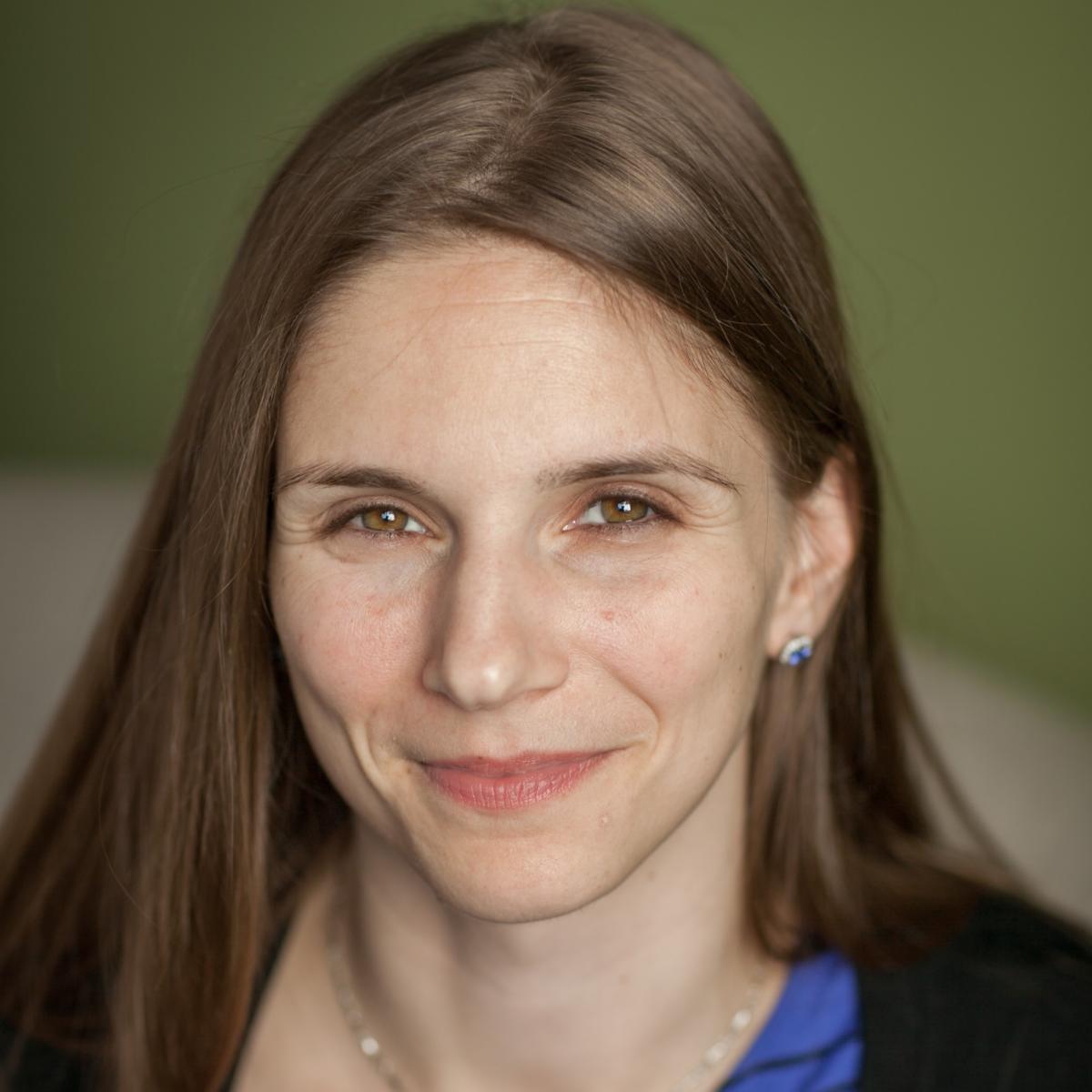
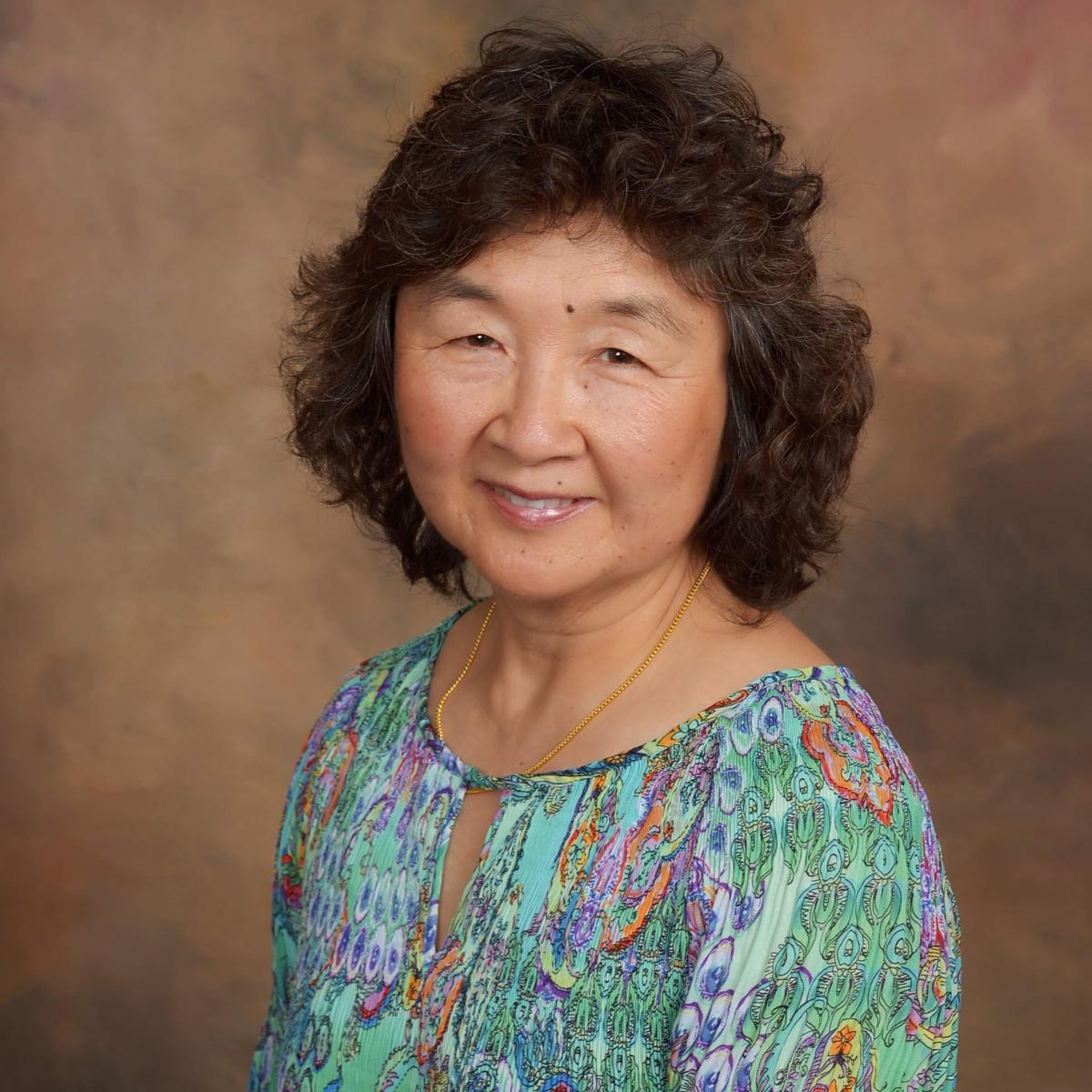
Tuesday, 25 July 2023 from 9:00 a.m. to 5:15 p.m.
Mavis Tsai, Ph.D., co-originator of FAP, is a clinical psychologist and senior research scientist at University of Washington’s Center for Science of Social Connection. She is the co-author of five books on FAP (some of which have been translated into Portuguese, Spanish, Japanese, Italian, Korean and Persian), and over 75 articles and book chapters. She is an ACBS Fellow, and received the Washington State Psychological Association’s Distinguished Psychologist Award in recognition of significant contributions to the field of psychology. She gave a TEDx talk “Create Extraordinary Interactions”, has presented “Master Clinician” sessions at the Association for Behavior and Cognitive Therapy, has led numerous workshops nationally and internationally, and has supervised clinicians all over the world in FAP. She is proud to be named by New Harbinger Publications as one of “13 Badass Psychologists… Who Happen to be Women”, and literally kicks ass as an advanced practitioner of the martial art of Kajukenbo. She loves to climb; the highest peak she has summited is Mt. Kalapathar (over 18,500 feet or 5600 meters) in Nepal. As Founder of the Nonprofit Organization ‘Awareness, Courage & Love Global Project” which brings FAP to the general public, she trains volunteers to lead chapters in six continents to create a worldwide- network of open-hearted change-seekers who strive to meet life’s challenges through deepening interpersonal connection and rising to live more true to themselves.
About Sarah Sullivan-Singh, Ph.D.:
Sarah Sullivan-Singh, PhD, earned her doctoral degree in clinical psychology from UCLA and completed a postdoctoral fellowship within the University of Washington Rehabilitation Medicine Department before beginning her independent practice. She is a Clinical Instructor within the University of Washington (UW) Psychology Department where she supervises graduate students treating clients using ACT and FAP. Dr. Sullivan-Singh also regularly guest lectures to psychology interns in the UW Department of Psychiatry and Biobehavioral Sciences. She is a certified FAP trainer and routinely teaches both students and professionals through individual supervision/consultation as well as workshops and online courses. Dr. Sullivan-Singh has also worked on treatment development for and provided clinical supervision within a randomized-controlled trial of FAP at the UW Center for the Science of Social Connection. As partner of The Seattle Clinic, a collective of independent practitioners focused on evidence-based practice, Dr. Sullivan-Singh is fortunate to be surrounded by students and colleagues who support her in following the lifelong path of encountering her gaps in awareness and knowledge and, in response, learning to acknowledge and address them – and through that process constructing increasingly authentic relationships with greater healing potential.
About Barbara Kohlenberg, Ph.D.:
Barbara Kohlenberg, Ph.D. is a Professor in the Department of Psychiatry and Behavioral Science and also in Family and Community Medicine. She is a clinical psychologist, who received her Ph.D. at the University of Nevada, Reno. Her NIH funded research has focused on Acceptance and Commitment Therapy (ACT) and Functional Analytic Psychotherapy (FAP) and their integration and application with substance use disorders and stigma. Dr. Kohlenberg is an ACT trainer and a FAP trainer, and has contributed to the literature in these areas and has conducted trainings internationally. She is interested in psychotherapy training in psychiatric residency programs, and in growing bedside manner among family medicine residents. She has deep interests in the role of compassion, acceptance, and relationship in promoting behavior change. She cherishes direct patient care, as well as training psychiatry residents. Helping both patients and residents learn that one can change one’s relationship with suffering rather than having to “get rid” of suffering is meaningful for her.
Outside of work Dr. Kohlenberg loves cooking, eating, walking, reading/listening to podcasts, and creating and participating in nurturing communities. She loves the beauty of our desert climate while always also missing the green and grandeur of the Pacific Northwest, where she grew up.
On completion of this workshop, participants will be able to:
1. Describe the 5 Rules of FAP and the behavioral theory underlying them.
2. Identify both functional classes and specific examples of problematic and improved in-session client behavior.
3. Understand when commonly used interventions can be inadvertently counter-therapeutic.
4. Demonstrate ability to recognize and respond therapeutically to both client in-session problematic behaviors and target behaviors using strategies adapted to your clients’ needs.
5. Prepare a FAP case conceptualization for one client that demonstrates the application of functional analysis to client behavior and awareness of the impact of your own therapist behavior on the client.
6. Demonstrate using all five FAP rules to facilitate generalization of client in-session progress.
7. Identify, understand and address how your clients can activate your own problematic behaviors such that you can enhance your target behaviors as a therapist.
8. Discuss ethical considerations related to cultivating intense therapeutic relationships with clients when using FAP.
9. Explore, receive, and express the deeper recesses of your true self -- what feels unseen, unmet, and unheld -- so that you can increase intensity, depth, and connection in your therapeutic relationships.
10. Describe Live with Awareness, Courage & Love protocols and ways to adapt them to your clients, family and friends, and community.
Target Audience: Beginner, Intermediate, Advanced, Clinical
Components: Conceptual analysis, Experiential exercises, Didactic presentation, Case Presentation, Role play
Package Includes: A general certificate of attendance
Putting the Context Back in Contextual Behavioral Science: Applying RFT to Rules, Self, and Values
Putting the Context Back in Contextual Behavioral Science: Applying RFT to Rules, Self, and ValuesPutting the Context Back in Contextual Behavioral Science: Applying RFT to Rules, Self, and Values


Tuesday, 25 July 2023 from 9:00 a.m. to 5:15 p.m.
Do you or the people you work with ever struggle to find a stable sense of self or self-awareness?
Do you or the people you work with ever feel aimless, crave purpose, or find it difficult to prioritize competing values?
‘Putting the Context Back in Contextual Behavioral Science’ (CBS) aims to work through the relational frame theory (RFT) approach to rules, the self, and values, addressing common misconceptions and barriers professionals may face when working with these areas in applied and research contexts. First, we will tackle the issue of rule-based insensitivity, addressing questions such as: Do rules make us insensitive or less sensitive to shifting contingencies? Is “rigid rule-following” merely repetitive or routine behaviors? What determines whether rule-following is rigid? Is people-pleasing always rigid? We will then explore how metaphor might be a useful tool to increase flexible, context-sensitive rule-following. We will further identify ways to help people clarify their values, means of assessing values clarity, and strategies to conceptualize and honor competing values. We will also discuss whether “away moves” (i.e., actions that bring us further away from who and where we want to be) are ever helpful. Next we will move onto the most important relationship any individual has, the relationship they have with themselves. We will address important misconceptions around the utility of identity labels from a CBS perspective, the links between selfing, rules, and values, and ways to foster a flexible sense of self while also respecting and appreciating your unique identity and learning history. Through experiential exercises, we will bring “functional coherence” to the fore; in simple terms, recognizing that labels are useful insofar as they work for us. We will also contact self-as-context, the stable perspective from which we can observe all self-relevant processes.
Louise McHugh is a Professor of Psychology at University College Dublin. She is a world leading expert in Contextual Behavioural Science (CBS), Relational Frame Theory (RFT) and Acceptance and Commitment Therapy (ACT). She has published over 100 papers and two books in the area. Prof. McHugh is the Director of the University College Dublin CBS lab and a peer reviewed ACT Trainer. She has been a Fellow of ACBS since 2014 and is the president elect for the UK and ROI ACBS Chapter.
About Alison Stapleton, Ph.D.:
Alison Stapleton is a Researcher at Smithsfield Clinic and Lecturer in Psychology at Maynooth University and Dublin Business School, Ireland. She collaborates on a multitude of psychological research projects and regularly delivers trainings both nationally and internationally. Alison is a member of the Editorial Board for the Journal of Contextual Behavioral Science, serves on the Steering Committee for the ACBS relational frame theory special interest group, and currently works at ACT Now Purposeful Living, a leading provider of ACT training in Ireland. Alison’s doctoral dissertation focused on selfing and rule-governed behavior in accordance with relational frame theory (RFT); part of which involved developing and testing procedures designed to reduce problematic rule-following. Alison has published 12 peer-reviewed articles and co-authored two book chapters on these topics, having recently contributed to The Oxford Handbook of Acceptance and Commitment Therapy. Alison is known for her ability to cut through jargon and make RFT accessible, a practice she believes is imperative if RFT is to continue to make meaningful impact.
Following this workshop participants will be able to:
- Summarize recent developments in CBS in the areas of rules, the self, and values.
- Demonstrate an understanding of functional contextualism, the philosophy of science said to underpin ACT and RFT.
- Outline common misconceptions in the areas of rules, the self, and values (e.g., that rigidity refers to repetitive behaviors).
- Address how to resolve common misconceptions in the areas of rules, the self, and values.
- Conduct collaborative functional analysis of challenges that may arise in the areas of rule-following, the self, and values alongside the people you work with.
- Design RFT-consistent exercises for rules, the self, and values that are tailored to the people you work with.
- Adapt existing interventions by adding RFT-consistent kernels/amending interventions so they are consistent with RFT.
- Apply and experiment with RFT-consistent interventions targeting rigid rule-following, the self, and values.
- Utilize single-case and idiographic approaches to individualize treatment and examine intervention effectiveness.
- Utilize cutting-edge research to enhance practice.
Target Audience: Intermediate, Advanced, Clinical, Research
Components: Conceptual analysis, Original data, Experiential exercises, Role play
Package Includes: A general certificate of attendance
Starting from where you are at: how to integrate ACT and other Contextual Behavioural Principles into your work.
Starting from where you are at: how to integrate ACT and other Contextual Behavioural Principles into your work.Starting from where you are at: how to integrate ACT and other Contextual Behavioural Principles into your work.


Tuesday, 25 July 2023 from 9:00 a.m. to 5:15 p.m.
Aisling is a chartered counselling psychologist and Peer Reviewed ACT Trainer. She is co-director of ACT Now Purposeful Living and Senior Psychologist at ADHD Ireland. Aisling teaches about ACT and working with gender, sexual and neuro minorities on a number of Masters and Doctorate programmes across the fields of psychology, psychotherapy and coaching. She has led trainings on these topics internationally for over a decade. Aisling co-authored The Power of Small, an ACT self-help book, a number one best-seller in non-fiction in Ireland, that has been translated into four languages. She co-edited Mindfulness and Acceptance for Gender and Sexual Minorities. Aisling has provided clinical input and supervision for research in the areas of ACT for addictions, practitioners competencies in working with sexual minorities, ACT for adolescents, online ACT for anxiety, ACT for those with Parkinson’s Disease and their loved ones, ACT-based psychoeducation for adult ADHD. Aisling is herself a sexual and neuro minority and is passionate about making ACT accessible to all, particularly those who are members of marginalized or frequently stigmatized groups. Aisling lives with her wife and cats in rural Wexford, Ireland surrounded by trees, a river and close to the sea. She loves to improvise, sing, write, spend quality time with her nearest and dearest and be in nature.
About David Gillanders, DClinPsychol:
David is Head of Clinical Psychology at the University of Edinburgh, where he provides subject leadership, department management, teaching and research. His primary teaching focus is training others to deliver Acceptance and Commitment Therapy. His research investigates psychological flexibility as an influential factor across a broad range of areas, including ACT interventions for IBS, diverse chronic health problems, cancer, transition to palliative care, and staff wellbeing in palliative care services. He has extensive experience in applying ACT with people with long term health conditions, supervising therapists and providing ACT based coaching for health professionals. He is a Fellow of ACBS and a Peer Reviewed ACT Trainer. David is also a husband, and a father of three, practices karate and loves to sing. Like all human beings, his mind can get in his way, he is not a model of perfect behaviour AND we are all works in progress, right ?
Following this workshop participants will be able to:
- Describe the functional contextual perspective that underlies ACT (i.e., ACT's philosophy recognizes that the purpose of any behavior varies for individual clients across contexts).
- Apply functional behavioural principles to themselves and others.
- Provide an overview of the ACT model and its core components.
- Explain the ACT model of Open, Aware and Engaged from the inside.
- Demonstrate mindfulness-based skills that enable clients to make more informed and empowered choices towards what matters most to them.
- Apply values work personally and professionally to create meaningful, sustainable change.
- Describe how to integrate ACT and functional contextual principles and methods within existing ways of working, making these principles accessible and relevant to your work and your diverse client groups.
- Demonstrate some of the skills needed to cultivate acceptance of unwanted internal experiences.
- Demonstrate the skill of delivering experiential exercises and ways of talking that model, evoke and reinforce Psychological Flexibility in others.
-
Utilise a range of experiential ways of working that will allow you and your clients to identify moves that bring you closer toward and further away from who and where you want to be, recognizing the costs and benefits of both, to find a sustainable path forward for positive change.
Target Audience: Beginner
Components: Conceptual analysis, Experiential exercises, Didactic presentation, Case presentation, Role play
Package Includes: A general certificate of attendance
The Foundations of Compassion Focused Therapy (CFT): A Trauma-Informed Introduction to CFT for a Traumatic World
The Foundations of Compassion Focused Therapy (CFT): A Trauma-Informed Introduction to CFT for a Traumatic WorldThe Foundations of Compassion Focused Therapy (CFT): A Trauma-Informed Introduction to CFT for a Traumatic World


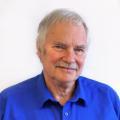
About Professor Paul Gilbert, PhD/OBE:
Paul Gilbert, FBPsS, PhD, OBE is Professor of Clinical Psychology at the University of Derby and honorary visiting Prof at the University of Queensland. Until his retirement from the NHS in 2016 he was Consultant Clinical Psychologist for over 40 years. He has researched evolutionary approaches to psychopathology with a special focus on mood, shame and self-criticism in various mental health difficulties for which Compassion Focused Therapy was developed. He was made a Fellow of the British Psychological Society in 1993, president of the BABCP 2002-2004, and was a member of the first British Governments’ NICE guidelines for depression. He has written/edited 23 books and over 300 papers and book chapters. In 2006 he established the Compassionate Mind Foundation as an international charity with the mission statement: To promote wellbeing through the scientific understanding and application of compassion (www.compassionatemind.co.uk). There are now a number of sister foundations in other countries. He was awarded an OBE by the Queen in March 2011 for services to mental health. He established and is the Director of the Centre for Compassion Research and Training at Derby University UK. His latest book is a major edited book with Prof G Simos (2022) Compassion: Clinical practice and Applications (Routledge).
About Dennis Tirch PhD:
Dr. Dennis Tirch is the Founding Director of The Center for CFT in New York; President of The Compassionate Mind Foundation. USA; Past-President and Fellow of The Association for Contextual Behavioral Science (ACBS) and an Associate Clinical Professor at Mt. Sinai Medical Center. Dr Tirch is the author of seven books, and numerous chapters and peer reviewed articles on mindfulness, acceptance and compassion in psychology. Dr Tirch regularly conducts Compassion Focused ACT and CFT trainings & workshops globally. He is also a Dharma Holder and lay teacher of Zen Buddhism; a Diplomate, Fellow & Certified Consultant for The Academy of Cognitive Behavioral Therapy, and a Founding Fellow and Past President of both the NYC-CBT association & NYC-ACBS. Dr. Tirch serves as a mindfulness, wellness and performance coach to leading figures in business, science and policy design. Dr. Tirch regularly presents workshops and trainings globally, in person and via video-conference. His work has been featured by the New York Times, Wall Street Journal and other media outlets.
About Laura Silberstein-Tirch, PsyD:
Dr. Laura Silberstein is the Director of The Center for CFT in New York and board member of the Compassionate Mind Foundation, USA. She has served as an Adjunct Assistant Professor at Albert Einstein College of Medicine. Dr Silberstein-Tirch is the co-author of four books, including How to Be Nice To Yourself. Dr Silberstein-Tirch regularly conducts trainings and workshops on Compassion Focused ACT and CFT internationally. She is a Past President of NYC-ACBS & Compassion Focused SIG of ACBS. Dr. Silberstein-Tirch is a founding member and Past President of the Women of ACBS SIG.
About Chia-Ying Chou, PhD:
Chia-Ying Chou, PhD is the founder and director of the San Francisco Center for Compassion Focused Therapies (SFCompassion)- a group psychotherapy practice and a training hub for Compassion Focused Therapy (CFT) in California. Dr. Chou obtained her PhD from University College London with a research focus on trauma. With the understanding that most forms of difficulty letting go can be rooted in trauma, during her postdoctoral years in the University of California, San Francisco, she started to develop a group CFT protocol for hoarding, CFT-HD, which is trauma-informed. As a specialist in hoarding and trauma, Dr. Chou’s clinical and research interest focus on the connection between difficult life experiences and the blocks and fears of letting go and letting in. Her practice, SFCompassion, is one of the few private practices in the world that conducts practice-based research. Besides research and clinical work, Dr. Chou provides training, supervision, and consultation for clinicians on CFT and hoarding worldwide. Her and her team at SFCompassion found a program, Better Treatment for Hoarding, where clinicians, researchers, and advocates come together to bring forth compassion-based public education, support, and research about hoarding.
On completion of this workshop, participants will be able to:
1. Participants will be able to describe the foundational evolutionary model of compassion, mindfulness and emotion used in CFT.
2. Participants will be able to use the CFT "Three Circle Model" of emotion regulation in clinical contexts.
3. Participants will understand and be able to discuss and utilize a trauma sensitive and trauma informed approach to CFT
4. Participants will be able to utilize the therapeutic relationship to create a context of relational safeness in the therapy room as a part of CFT process
5. Participants will be able to outline and implement a CFT model of mutual growth and transformation, relating therapist personal practice and self-care to the approach to therapy and clients’ well-being.
6. Participants will be able to discuss the model of shame and according intervention set in CFT
7. Participants will have a working knowledge of how to address shame in CFT
8. Participants will be able to identify and embody the 12 competencies of compassion, experientially training patients in using these elements.
9. Participants will be able to use a working knowledge of specific therapist micro-skills and active therapy processes that can effectively work with shame in session.
10. Participants will be able to deploy a range of specific techniques that are focused on cultivating the competencies of compassion in the therapy relationship.
Target Audience: Beginner, Intermediate, Clinical
Components: Literature review, Experiential exercises, Didactic presentation, Case presentation, Role play
Package Includes: A general certificate of attendance
The Next ACT: How 40 Years of Development Has Prepared CBS for What is Coming.
The Next ACT: How 40 Years of Development Has Prepared CBS for What is Coming.
The Next ACT: How 40 Years of Development Has Prepared CBS for What is Coming.
_0.jpg)

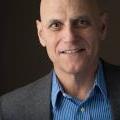
Tuesday, 25 July 2023 from 9:00 a.m. to 5:15 p.m.
Steven C. Hayes is a Nevada Foundation Professor in the Behavior Analysis program at the Department of Psychology at the University of Nevada. An author of 47 books and over 675 scientific articles, he is the originator of Relational Frame Theory (RFT), Acceptance and Commitment Therapy (ACT), and Functional Contextualism. His popular book Get Out of Your Mind and Into Your Life was the first general purpose ACT self-help book and was featured in Time Magazine among several other major media outlets and for a time was the best-selling self-help book in the United States. His book, A Liberated Mind, has summarized the history of ACT and Contextual Behavior Science. Dr. Hayes has been President of several scientific societies, including ACBS, and he has received several national awards, such as the Lifetime Achievement Award from the Association for Behavioral and Cognitive Therapies. Google Scholar ranks him as among the top most cited living scholars in all areas of study and Research.com ranks him as among the most cited psychologists in the world. He is currently trying to explicate a Process-Based Therapy approach (which he is developing with Stefan Hofmann, Joseph Ciarrochi, and several others), using ACR development strategies in part as a model.
On completion of this workshop, participants will be able to:
- Describe how the the six processes in a traditional ACT approach to psychological flexibility / inflexibility are expanded by the Extended Evolutionary Meta-Model
- Describe the requirements for phenomena to be ergodic
- Explain how the six flexibility processes can be extended to the sociocultural level
- Demonstrate the ability to formulate an EEMM consistent case conceptualization using a network approach
- List the six kinds of healthy yearnings that underlie the six psychological inflexibility processes and link these ideas to the EEMM
- Describe how psychological flexibility processes satisfy the yearnings the sit inside inflexibility processes
- Explain the link between eugenics and psychometrics or for normative conceptual categories as applied to individuals
- Describe the essential requirements of idionomic statistics
- Link common idionomic statistical methods to process-based case conceptualization
- List at least two client actions that indicate each of the flexibility / inflexibility processes during a session
- Describe how the EEMM expansion of psychological flexibility expands ACT
- Show how cognitive reappraisal can be done in a way that fit the EEMM
- Describe how neurobiological measures can compliment EEMM based EMA assessments
- Demonstrate at least two methods to move each of the key features of processes of change in the EEMM
Target Audience: Beginner, Intermediate, Advanced, Clinical, Research
Components: Conceptual analysis, Original data, Experiential exercises, Didactic presentation, Case Presentation, Role play
Package Includes: A general certificate of attendance
Working Effectively with Neurodivergent Adults using Functional Analysis as Your Guide
Working Effectively with Neurodivergent Adults using Functional Analysis as Your GuideWorking Effectively with Neurodivergent Adults using Functional Analysis as Your Guide: Improve Mental Health, Build Self-Compassion, Self-Acceptance, and Pride in Identity Using a Neurodiversity-Affirming Approach


Drew Carr, Ph.D.
The frequency of autism and attention-deficit hyperactivity (ADHD) diagnoses has exploded in recent years in both children and adults (Davidovitch et al., 2021; Yoo, 2013). This proliferation is largely due to a better understanding of autism and ADHD presentations in previously under-represented groups including adolescent and adult women and BIPOC communities (e.g., Kielsgard & Brown, 2021; Quinn & Madhoo, M. 2014). With this has come a gradual reduction in the stigma attached to these diagnoses in the public and a flourishing self-advocacy and social justice movement.
This change also brings new challenges for mental health professionals. Neurodivergent adolescents and adults have higher rates of sleep problems, depression, anxiety, suicidal ideation, and psychiatric hospitalization (Martini, et. al., 2022), reduced self-compassion (Beaton, Sirios, & Milne, 2020 & 2022; Cai, Gibbs, & Love, 2022), and higher rates of completed suicide than non-neurodivergent peers (Hedley & Uljarevic, 2018). As a result, large numbers of diagnosed and undiagnosed neurodivergent adolescents and adults are presenting in therapy, often having accumulated several misdiagnoses before their neurodivergence is identified (Au-Yeung, 2019). Mainstream psychology is struggling to meet the needs of these clients. Clinicians and researchers need new skills in how to identify undiagnosed individuals who mask their neurodivergence, how to use their existing skills effectively this neuro-minority, and how to work an affirming way with this often-marginalized group.
Contextual behavioral science has much to offer members of the burgeoning neurodivergent community. In particular, clinical behavior analysis offers the ability to re-examine what was previously defined as ‘disordered behavior’ and explore different functional targets for neurodivergent people. Ongoing functional assessment (Sandoz et. al. 2022) can guide the individual towards values-led behavior while improving the clinician’s sensitivity to the individual differences that are accepted and celebrated within the neurodivergent community. Using functional analysis, the clinician can help to improve wellbeing in a contextually sensitive manner and create new opportunities for self-compassion that can alleviate suffering for neurodivergent people in the long-term (Lunsky, et.al., 2022).
Using an experiential approach that blends ‘head’, ‘heart’ and ‘hands’, this workshop will focus primarily on the needs of older adolescents and adults however the principles will also be applicable to younger clients. Participants will first be presented with a clear and concise understanding of the fundamentals of neurodiversity-affirming practice including the use of language, social model of disability, ‘double empathy problem’, intersectionality, and minority stress. They will then explore how neurodivergence presents in therapeutic settings when clients are masking their differences, the impact this can have on mental health, and what to do when the client presents in neurodivergent burnout.
Building on the fundamentals of clinical behavior analysis and operating within a neurodiversity-affirming framework, participants will work through a series of interactive and exploratory activities using case studies, small group discussion, and role plays to hone their ability to apply ongoing functional analysis with clients. Participants will learn how to identify the function of ‘clinical’ behaviors that might also serve helpful functions for neurodivergent people. Examples will include challenging behaviors for clinicians to manage in clinical practice, such as compulsions occurring within obsessive-compulsive disorder, body-focused repetitive behaviors such as skin-picking and hair-pulling, bingeing, purging, self-harm, and suicidal ideation. Treatment approaches will center on creating positive change by building skills in self-soothing, self-regulation, self-compassion, self-acceptance, and pride in identity.
Participants will leave with a nuanced approach that will enhance their effectiveness in therapeutic practice and further develop their ability to improve the wellbeing, self-compassion, and self-acceptance of neurodivergent clients. Participants will be provided with handouts, checklists, and practice guides to support the implementation of new skills within a neurodiversity-affirming practice.
About Jennifer Kemp, MPsych (Clinical):
Jennifer Kemp, BSc(Psych)Hons, MPsych(Clinical), GradDipApplSc(Psychology of Coaching), MAPS, FCCLP. Jennifer Kemp is a privately practicing Clinical Psychologist based in Adelaide who works with older adolescents and adults experiencing perfectionism, eating disorders, body image problems, life-long anxiety, obsessive-compulsive disorder (OCD), and chronic illness. Most of these clients are neurodivergent. Using a neurodiversity-affirming approach, Jennifer weaves together acceptance and commitment therapy (ACT), behaviour therapy and compassion-focused approaches to help her clients improve their mental health, develop self-compassion skills and move towards self-acceptance. Jennifer balances her practice with writing, presenting, and supervision consultations. She is the author of “The ACT Workbook for Perfectionism: Build Your Best (Imperfect) Life Using Powerful Acceptance & Commitment Therapy and Self-Compassion Skills” and a sought-after speaker, trainer, and podcast guest, delivering live workshops and webinars to professionals internationally, including for the Australian Psychological Society, Association for Contextual Behavioral Science (ACBS), and International OCD Foundation (IOCDF) among others.
About Drew Carr, Ph.D.:
Andrew (Drew) R Carr Ph.D. is a psychologist at the VA Sierra Nevada Health Care System and in Inner Space psychological Services. His primary clinical interest is working with individuals with co-occurring frontoexecutive and mental health symptoms, such as ADHD, TBI, and post-concussive individuals. He also has a background in working in men’s health, neurobehavior, spirituality, neuropsychological assessment, training and supervision, and coaching. He established Momentum Center for Clinical Excellence, a training program for psychologists in Los Angeles. He also served as director of clinical training at various institutions. He has received advanced training in diverse CBS and CBA psychotherapies and regularly trains and researches in these fields
On completion of this program, participants will be able to:
- Describe the principles of neurodiversity-affirming practice including the social model of disability, double empathy problem, and use of best-practice, affirming language, and how to use this to improve the accessibility and outcomes for neurodivergent people in therapy
- Describe neurodivergence beyond the limits of DSM pathology-based criteria
- Adapt case conceptualizations to include the interaction of neurodivergence with contextual factors including minority stress and discrimination, and how this leads to higher rates of trauma, severe mental illness, misdiagnosis, poorer lifetime treatment outcomes, and higher rates of completed suicide
- Utilize ongoing functional analysis to distinguish between ‘disordered’ behavior and important neurodivergent needs and preferences
- Apply functional analysis and compassion-focused strategies to target neurodivergent burnout, sensory sensitivities, masking, inertia, meltdowns, shutdowns, isolation, and sensitivity to rejection
- Deliver therapeutic interventions that help neurodivergent clients to create a world that works better for them, built upon self-advocacy, self-compassion, self-acceptance, and pride in identity
Target Audience: Beginner, Intermediate, Advanced, Clinical, Research
Components: Conceptual analysis, Literature review, Experiential exercises, Didactic presentation, Case presentation, Role play
Package Includes: A general certificate of attendance
Program
ProgramCheck out the daily schedule:
Check out the themed sessions highlighted here.
View the detailed program, including abstracts:
View the abstracts from all pre-recorded sessions here.
Disponible en español
Haven't registered for the conference yet? Find out more about rates and registration here.
Please learn more about our fantastic 2023 Program Committee here.
Call for Submissions - Closed
Call for Submissions - ClosedACBS is no longer accepting submissions on Contextual Behavioral Science and related topics for consideration for our July 2023 conference. Please note dates below when submission results will be shared.
Chapter/SIG/Committee meeting deadline: 22 April 2023
If you have any problems submitting, please contact [email protected]
Oral submission deadline: 15 February 2023
IGNITE - Panel - Symposium - Paper - Workshop - Plenary/Invited
Results of oral submissions will be emailed out in the last week of March or the first week of April 2023.
Poster submission deadline: 20 March 2023
Results of poster submissions will be emailed out in April.
Due to local technological capabilities, conference sessions for 2023 can be delivered one of three ways:
- In-person: All presenters will be at the conference in Cyprus and present in-person.
- Hybrid: The majority (51%+) of presenters will be at the conference in Cyprus and present in-person, but some presenters may participate virtually, live (synchronously).
- Pre-recorded (On-Demand): All presenters will pre-record and edit their video presentation and provide the finished video file to ACBS. (Needed by 30 June.) The recording will be available on the conference website. There is no live or in-person aspect to this option.
General Submission Tips and Information
Submission types:
Chapter/SIG/Committee Meeting
This gives Chapters/SIGs (or forming chapters and sigs) the opportunity to reserve a space and time to get together to network with others who share the same area of interest or geographic setting. This form allows SIGs and Chapters to request a time in the program for this purpose. Deadline: 22 April 2023
Plenary/ Invited Address (use only if instructed)
Poster
Posters usually report empirical research and will be organized into one or more sessions, during which attendees will be invited to review the research presented and discuss findings with poster presenters, either in-person or on-demand (virtually). In-person presenters must be at their poster during their assigned time of the poster session and may choose to provide handouts. On-demand poster presenters will be requested to provide their Poster PDF by 30 June 2023 (Poster size: no larger than 36 inches tall by 48 inches wide, or A0 size. Smaller is also permitted). Abstract word limit: 175 words maximum
IGNITE
The Ignite presentation is a short, structured talk in which presenters present on ideas and issues they are most passionate about using a “deck” of 20 slides that auto-advance every 15 seconds (no exceptions). Exactly 5 minutes total. Topics may be empirical, conceptual, philosophical, historical, or methodological. Presentation should be well-practiced and high energy (perhaps even... fun!). On-demand Ignite submissions will be requested to provide their finalized video file by 30 June 2023. Abstract word limit: 175 words maximum
For more on Ignite presentations, see: http://igniteshow.com/ and http://www.speakerconfessions.com/2009/06/how-to-give-a-great-ignite-talk/
Panel Discussion
Panel discussions are 60 minute sessions and consist of 3 to 5 speakers selected for some shared interest or expertise in an area. Panelists respond to one or more questions or issues, with time allotted for interaction among the speakers and with the audience. A panel discussion is organized by a chairperson who serves as the session’s moderator. On-demand panel submissions will be requested to provide their finalized video file by 30 June 2023.Abstract word limit: 175 words maximum
Symposium (chair, 3 - 4 papers and a discussant)
Organized by a chairperson who moderates the 60 minute session, symposia are a series of three to four 10-15 minute presentations focused on either empirical research or conceptual, philosophical, historical, or methodological issues. A discussant highlights and integrates the contributions of various speakers in the symposium and moderates questions from the audience. Chairpersons are encouraged to use symposia as an opportunity to integrate related work by: 1) bringing speakers of different affiliations together rather than showcasing the work of a single group and 2) incorporating different kinds of talks (e.g., historical, conceptual, and research-based) on the same topic into one symposium. Papers from submissions that are not accepted may be considered for a poster session. This year, we are prioritizing submissions that are research and data driven. In service of being more data aware, we encourage you to include research citations (data citations) with your proposal. The Program Committee will not split apart symposia that are submitted together. The "Symposium Overview" must be submitted prior to individual papers for the same symposium. On-demand symposium submissions will be requested to provide their finalized video file by 30 June 2023.Abstract word limit: 175 words maximum
Paper (not part of a pre-arranged symposium)
Paper submissions are individual, oral presentations, usually concerned with conceptual, philosophical, historical, or methodological issues. A paper submission will usually report on data. All paper presentations will be 10-15 minutes long. Accepted submissions will be organized into paper sessions of 60 minutes. Submissions not accepted will be considered for a poster session. We are prioritizing submissions that are research and data driven. In service of being more data aware, we encourage you to include research citations (data citations) with your proposal. On-demand paper submissions will be requested to provide their finalized video file by 30 June 2023.Abstract word limit: 175 words maximum
Workshop
Workshops are training sessions of 1 or 2 hours and usually focus on a combination of experiential and/or didactic exercises. Workshop submissions are highly competitive (note: based on past events, the acceptance rate for workshops is approximately 60-70%, and of workshops submitted only 20%-35% receive 2 hour slots). Please put your best workshop/abstract forward keeping this in mind when determining your desired length. Keep in mind as well that most workshops selected are for the 1 hour slots. Be sure to clearly state your goals and objectives for participant education in your submissions. Workshops should be regarded as opportunities to directly train specific skills rather than to present research findings, discuss conceptual, philosophical, or methodological issues, or share opinions. However, in service of being more data aware, we encourage you to include research and data citations supporting your topic with your proposal, and to briefly present these (1-2 slides) during your workshop. Submissions that are not clearly focused on training should be submitted for other formats. On-demand workshop submissions will be requested to provide their finalized video file by 30 June 2023. Abstract word limit: 175 words maximum
Tips for Submissions
- General Submission Information
- Are you wondering how to increase the chance of acceptance for your submission? Click here for tips.
- Unsure about writing Educational Objectives? Click here to learn more about them.
- Are you submitting a poster? Check out the poster guidelines here.
General Submission Information
General Submission InformationDue to local technological capabilities, conference sessions can be delivered one of three ways:
- In-person: All presenters will be at the conference in Cyprus and present in-person.
- Hybrid: The majority (51%+) of presenters will be at the conference in Cyprus and present in-person, but some presenters may participate virtually, live (synchronously).
- Pre-recorded (On-Demand): All presenters will pre-record and edit their video presentation and provide the finished video file to ACBS. The recording will be available on the conference website. There is no live or in-person aspect to this option.
If your session is selected for hybrid presentation:
- The majority of presenters must register and attend the in-person event in Cyprus. Virtual presenters will present the session live (synchronously) with the in-person presenter(s).
- Virtual presenters are required to register for the conference.
- You may be required to submit post-test questions so conference attendees who view the recording can earn Continuing Education credits.
If your session is selected for pre-recorded, on-demand presentation:
- You and all your co-presenters will need to pre-record and edit your presentation. You will need to send the finished video file to ACBS staff by 30 June 2023 so it can be uploaded to the conference website.
- Virtual/pre-recorded presenters are required to register for the conference.
- If your session is a workshop, panel, or symposium, you will be required to submit post-test questions so conference attendees who view the recording can earn CE credits.
- If you would like your session to be considered for pre-recorded, on-demand presentation, make sure you select the "Pre-Recorded (On-Demand)" session type when submitting.
Poster submissions: Posters can be submitted for on-demand or in-person presentation. Regardless of in-person or on-demand presentation, at least one poster author must register to attend the conference (either in-person or virtually). On-demand posters will need to be submitted by 30 June 2023.
Ignite submissions: Ignites can be submitted for pre-recorded (on-demand) or in-person presentation. Regardless of in-person or pre-recorded presentation, at least one Ignite author must register to attend the conference (either in-person or virtually). On-demand Ignites will need to be submitted by 30 June 2023.
Detailed instructions about how to submit using this year's submission website, may be found here.
Presenter Information
Presenter InformationPost-Tests
We are planning to make Continuing Education credits available to attendees for watching recorded sessions. In order to receive credit, attendees will need to complete a post-test. This test must be of sufficient depth to adequately determine the level of learning that was achieved.
The number of multiple-choice questions you need to submit varies based on submission type:
- 3 questions for individual paper submissions (now in a symposium)
- 6 questions for plenaries & inviteds, panels, symposia, and 1 hour workshops
- 12 questions for 2 hour workshops
For more information: APA's Tips for Creating Post Tests
Please submit your post-tests by 31 May: https://forms.gle/xfnWXhybRtyuUfAh6
PowerPoints & Handouts
Please click here for the PowerPoint template for 2023. Consider offering live subtitle translation of your session during your presentation. To do that, in PowerPoint click on “Slide Show” then “Subtitle Settings”, then select English as your “spoken language” and another language as your “subtitle language”. ACBS encourages Spanish or Greek this year, but any ACBS member language would be useful if you prefer another. Then click “Always Use Subtitles”.
As always we would like to collect as many PowerPoint presentations as we can prior to the conference, to make them available for in-person and virtual attendees on the conference platform. Please title your files using the following examples (session number, first presenter, title or truncated title, type):
23 - Kostas - ACT for Pain - PPT
23 - Kostas - ACT for Pain - Handout 1 and 2
23 - Kostas - ACT for Pain - Handout 2
59 - Valenzuela - Derived Relational... - PPT
A single PDF file is preferred (multiple files combined), but other file types are accepted. (Those session that will be translated will also be asked directly to provide files as PPT and/or Word docs for translation.)
In-Person Workshops: https://www.dropbox.com/request/XJpNXpRV57ZnfN62aLFk
In-Person Plenaries & Inviteds, Panels, and Symposia: https://www.dropbox.com/request/K2WbUSxZfbZzRQfISFi0
Pre-Recorded sessions (PPT and Handouts): https://www.dropbox.com/request/KfFxXGcP4JFZ3G8Cvvzk
Please add your files above prior to 30 June to ensure that they can be loaded to the online program prior to your presentation. Late submissions are most welcome, but adding them to the online program prior to the conference can not be guaranteed.
Printing Handouts
In an effort to reduce paper consumption at the conference, we will only be printing handouts that are worksheets to be completed during sessions. (PPT slides with space for notes are not considered worksheets.) If you have a worksheet that you would like to make available to your attendees, add it to the Dropbox folder (links above) by 30 June so that it can be printed. Make sure to indicate in the file name what needs to be printed (for example, “23 - Kostas - ACT for Pain - Handout 1 - PRINT”). Copies will be delivered to your room just prior to your session during the conference.
Pre-Recorded Video Files
Please add your edited, pre-recorded video to this Dropbox folder by 30 June: https://www.dropbox.com/request/KfFxXGcP4JFZ3G8Cvvzk
Video files must be provided in MP4 format, and no larger than 4GB each.
Posters
Find detailed poster guidlines here.
In-Person Posters
Poster size: no larger than 36 inches by 48 inches, or A0 size. A smaller size is also permitted.
Please consider using an engaging poster format such as the one described here. This should aid you in reaching your audience and getting the conversation started about your work.
**Please note, we are unable to print posters for presenters (or pay for poster printing), so please come to the conference prepared with your printed poster.
We would like to also share your work with our virtual audience. If you're willing and able, please submit a PDF of your poster by 30 June: https://www.dropbox.com/request/t7ygklz0XTnGvuQP1FIH
On-Demand (Virtual) Posters
Accepted posters (titles/authors/abstracts) will be posted on our conference website prior to the event, so that attendees can read about the posters before attending.
Please submit a PDF of your poster by 30 June: https://www.dropbox.com/request/ID4zrMPJW0xm1DT5vVso
Program Committee & Organising Committee
Program Committee & Organising Committee2023 Program Committee Chairs

Anthi Loutsiou, PsyD , Licensed Clinical Psychologist / EuroPsy Certified Psychologist
Dr. Anthi Loutsiou has been a member of the Department of Psychology, University of Cyprus since 2003. She trained as a Clinical Psychologist and a contextual behavior psychotherapist in the USA where she earned her Doctorate in Clinical Psychology from the University of Denver. She is fully qualified as a Psychologist in Cyprus and Colorado/USA (inactive) and is registered as a EuroPsy Certified Psychologist. She is an accomplished trainer and a pioneer in the training of psychologists in higher education in Cyprus. She has more than 20 years of teaching and advising experience in higher education. As an instructor/lecturer in the Department, she has mentored more than 140 school psychologists and facilitated the field placement of more than 850 undergraduate psychology students. Anthi is an active supporter of internationalization efforts within the field of psychology and has contributed with great passion to professional service at a national and international level.

Amanda C. Rhodes, PsyD
Dr. Rhodes is a licensed psychologist and part of a clinical research program that characterizes the longitudinal effects of disease and treatment as well as the development of novel psychological interventions on the cognitive function and quality of life (QOL) in children and adults with cancer, cancer predisposition syndromes, and other chronic illnesses. She has expertise in acceptance- and mindfulness-based interventions and chronic and acute pain. She also serves in leadership roles in several international scientific organizations related to contextual behavioral science and psycho-oncology.
If you have questions about your submission(s), please contact Anthi and/or Amanda.
2023 Cyprus Organising Committee

Chair: Danae Papageorgiou
Dr Papageorgiou is a licensed clinical psychologist based in Nicosia, Cyprus. She works with various mental health difficulties, specialising in treating anxiety disorders. She uses a combination of therapeutic approaches, with a focus on exposure therapy and acceptance and commitment therapy. She conducts psychoeducational assessments with children and adolescents. Her current research projects aim to investigate the use of values interventions to inform exposure therapy, as well as the use of virtual reality and ecological momentary assessment to improve both treatment and treatment access for cancer patients. Dr Papageorgiou also teaches clinical psychology at university and postgraduate level.
Vasilis Vasileiou
Marianna Zacharia
Artemis Theofanous
Spyros Demosthenous
Dafne Morroni
Pinelopi Konstantinou
Katerina Georgiou
Georgia Polyviou
Andria Christodoulou
Maria Koushiou
Maria Kokkinou
Patrisia Nikolaou
Michaella Paraskeva-Siamata
Chrysilia Gkleka
Vasiliki Bournatzidou
Niki Lympoura
Anthoulla Papageorgiou
Marina Christoforou
Eleana Lamprou
Panayiotis Papettas
Vasiliki Christodoulou
Marina Papadopoulou
Maria Antoniadi
Reviewers:
Jacqueline A-Tjak
Matthew Boone
Michael Bordieri
Lauren Borges
Aimee Caramico
Sarah Cassidy
Connie Chong
Howard Crumpton
Joanna Dudek
Rivka Edery
Colleen Ehrnstrom
Evelyn Gould
Jennifer Gregg
Louise Hayes
Valerie Kiel
Pinelopi Konstantinou
Maria Koushiou
Yukie Kurumiya
Raimo Lappalainen
Jenna LeJeune
Lucia Loureiro
Mai Manchanda
Alexandros Maragakis
Siri Ming
DJ Moran
Jose Moreno
Dafne Morroni
Manuela O´Connell
Margot Osorio
Ray Owen
Danae Papageorgiou
Nanni Presti
Tiffany Rochester
Jiayin Ruan
Francisco Ruiz
Emily Sandoz
Stavroula Sanida
Thomas Sease
Eugen Secara
Matthew Skinta
Wanda Smith
Debbie Sorensen
Gita Srikanth
Sara Styles
Mary Anne Tamula
Niklas Törneke
Sanna Turakka
Sheri Turrell
Janani Vaidya
Vasilis Vasiliou
Kevin Vowles
Sean Wright
Joann Wright
Marianna Zacharia
